#assigned goddess at birth
Explore tagged Tumblr posts
Text
Assigned Deity at Birth • ADeiAB • Assigned Deity at Creation ✧ ⋆.ೃ࿔*:・

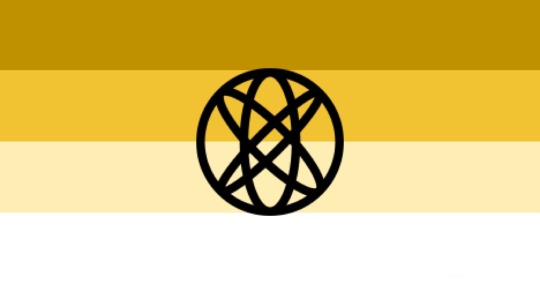
A xeno agab for those who were assigned deity at birth/ creation.
Assigned God at Birth • AGodAB • Assigned God at Creation ✧ ⋆.ೃ࿔*:・

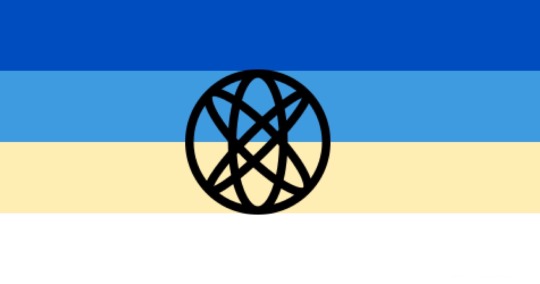
A xeno agab for those who were assigned god at birth/ creation.
Assigned Goddess at Birth • AGdsAB • Assigned Goddess at Creation ✧ ⋆.ೃ࿔*:・

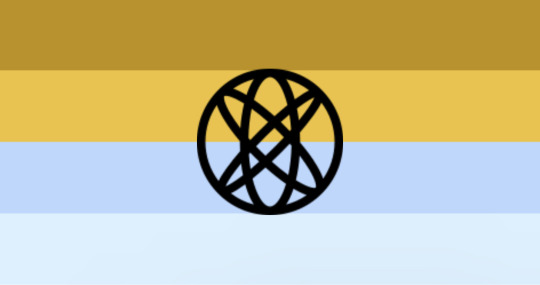
A xeno agab for those who were assigned goddess at birth/ creation.

#i have mastered the art of tearing convention apart ✨#mogai#liom#mogai coining#liom coining#mogai flag#liom flag#mogai orientation#liom orientation#mogai label#liom label#mogai safe#liom safe#neo agab#xeno agab#assigned deity at birth#assigned god at birth#assigned goddess at birth#adeiab#agodab#agdsab#assigned deity at creation#assigned god at creation#assigned goddess at creation
140 notes
·
View notes
Text
when the worldbuildings so complex even 100 pages in you don’t know what’s going on
#shitpost#reading#the ruin of kings#I don’t know what’s happening :D!!#over 100 pages in and it might as well be page 5 for how well I understand this world#tf is a vané what is tenyé why’s the deal with quuros#how much magic is real what does it do#what’s a talis stone why is it important what is the shackle of stone#actually here’s a question what goddamn country are we in?#who is the main character#oh also what’s the deal with the deities? are you like assigned a goddess at birth??#how do you know which one you get?#WHAT was the deal with that portal they didn’t use#I’m so confused#what are the rules about slavery#who is enslaved#and what’s it’s connection to quuros?#what’s the black brotherhood what are. who
38 notes
·
View notes
Text
With Epic: The Musical coming to an end, I'd like to pitch my idea for a similar project called Legend: the Musical, based on the life of Herakles.
The basic plot is that it follows the life of Heracles through his birth, tragic family life, twelve Labors, and his ascension to Godhood with some deviations from the original myth not dissimilar from how Epic did it.
The biggest change, is that it will also be told through the point of view of Hebe, Goddess of Youth who eventually ends up married to Herakles. In the musical, she's Hera's handmaiden after she took her in when she was orphaned during the Titan War. Hebe falls in love with Herakles early on, but she doesn't get near him because she knows every time mortals love Gods it always ends tragically for the mortal. She says as much in her song, "From Afar".
A motif that would run through the musical is that of the serpent. For context: the first song in the musical would be "Serpent in the Cradle", that describes Herakles choking two Serpents to death as a baby, but his own mother Alkmene calls HIM the Serpent in the Cradle.
Throughout the play whenever Herakles is at his lowest, he gets reminded of how he is the Serpent in the Cradle. A poison that hurts everything he loves. A thing that should not exist.
The bid turning point in the musical would be the death of Herakles' wife and kids, where Hera infects him with madness and compels him to kill them. Hebe saves his life by descending from Olympus and giving the message that Herakles wasn't at fault, but she can't betray Hera's confidences so she can't say who did it. Nevertheless, Herakles gets assigned the Twelve Labors instead of Execution, and Hebe helps him however she can.
During the LAbors, Herakles and Hebe fall in love, but Herakles stays away, believing he is the Serpent in the Cradle and will bring ruin to her, echoing Hebe's song "From Afar" and it's all tragic and sad.
There's more too it, obviously, but if you'd like to hear more let me know.
#Epic#Epic the Musical#Musical#Musicals#idea#ideas#thought#thoughts#musings#Herakles#Hebe#Hera#Zeus#Greek Mythology#hellenic polytheism#musical idea#Legend the Musical
88 notes
·
View notes
Note
hiya! i was wondering if you have a post on how to create a god/deity for your story? thanks!
Writing Deities
What Type of God?
The form and characteristics of your deity characters will depend highly on the overall worldbuilding and mood of your story. Here are some common deity “types”:
Human-like gods who make their own share of mistakes, are tempted by desires (think of Greek/Roman Gods)
“God” as a formless, omnipotent force of the universe that directs people’s fates
An omnipotent God vs, Many gods in charge of one element or thing
Gods who command large spheres of elements (like sea, fire, war, etc.) vs. God of petty things (e.g. the God of morning coffee)
The appearance of a God will reflect what the people of that culture look up to. They can resemble an animal, have almost monster-like features or just look human more or less.
The Implications of Immortality
A god would generally be immortal, and this would be a major difference between your superheroes and a god. They cannot die and therefore are free from the fear of death, which is the most powerful motivator for our heroes.
This means that you’ll need to assign a flaw so that you can kick your deity characters’ butts. Often, this comes from the very fact that gods are immortal.
A tragic backstory of the god losing a human they cared about
A god who wants to die
A god who was kind and compassionate, but grew irritable and tired after seeing eons of human stupidity.
A god who regrets creating the world
Set up limits of their power. Gods cannot invade each other’s territory or they cannot bring back people from the dead. Or they aren’t allowed to roam in modern clothing, and your god happens to hate armor.
In essence, deity characters exist to question the reader’s belief about an aspect of life. Gods are often personifications of abstract concepts and through them you can convey a message about what you think is important.
For example, a Love Goddess may be a shriveled hag while her daughter, the Goddess of Passion, may be a standard beauty. This immediately conveys the message that a pleasing appearance is no substantial factor of true love.
A God’s “Personality”
The most important part of a god’s personality is going to be their attitude towards humans, since the purpose of a god is to command over and protect lives other than theirs.
How does the god feel about being assigned a “job” at birth? Or did they choose to be a god (any regrets)?
Generally, a god’s personality would be linked to the thing they command. The god of the sea may be capricious but surprisingly open-minded; the god of trees may be generous but stubborn, etc.
You can:
Summarize the god’s motto in a single sentence. It can be something philosophical or even comical, depending on the mood of your story. (e.g. “Love is cruel,” “Donuts are always right.”)
What kind of humans the god would like the most vs. hate the most
In general, are they compassionate/loving or sadistic/pessimistic?
─── ・ 。゚☆: *.☽ .* . ───
💎If you like my blog, buy me a coffee☕ and find me on instagram!
💎Before you ask, check out my masterpost part 1 and part 2
💎For early access to my content, become a Writing Wizard
#writing#writers and poets#creative writing#writers on tumblr#writeblr#poets and writers#helping writers#let's write#creative writers#resources for writers#writing process#writing community#writing inspiration#writing advice#writing ideas#writer#on writing#writing prompt#writer stuff#writers block#writerscommunity#writers community#writers life#write it#writers#references for writers#writing ask#writing a book#writing asks#writing about writing
193 notes
·
View notes
Note
HIHIHI!! Begging on the knees cherry ontop can u pls do a 2024 ver medicine seller with a fem!reader who's known by the maids as extremely unlucky like tripping on thin air and fails the simplest tasks but is a very hardworker enough to be admired by manyPLSPSLSPLSPSLSPSL ☹️☹️☹️☹️🙏🙏🙏
Kon-Kutsuriuri x Unlucky! Fem! Reader

I enjoyed doing this cute request! I hope you enjoy what I wrote and I'm sorry for any grammar mistakes!
(/^▽^)/★*☆♪
words: 1329
Fluff, mention of injuries, death, and a curse word
Mononoke (2024) Masterlist


Maiden of Misfortune

Ever since you arrived at the Ōoku, you’ve made a title for yourself: The Cursed Nuisance. At least that’s what you are in the eyes of Madame Utayama. You brought more workload than what was already needed. However, she was gracious enough to allow you to continue working in the Ōoku rather than cutting you off.
You were grateful for Madam Utayama, and you strived to work diligently and earnestly to reimburse her generosity. However, not one of the Seven Gods of Fortune had blessed you. You would trip on your kimono, getting soaked under a sudden storm, dropping important deliveries, standing your kimono with ink, losing your zōri, and that’s just the tip of the iceberg. However, you still worked tirelessly by pushing through the misfortune. You even took on the workload of other maidservants. Many of the maidservants praised and admired your persistence.
It’s been one month since you’ve arrived, the Birth Celebratory Ceremony is nearing, and not much has changed for you, sadly. However, when it was time to partake in drinking the water from the well of the water goddess, there were two new young women you’d never seen before. You soon came to find out their names were Asa and Kame. They were the new maidservants.
It’s been 3 days since they arrived, and you’ve had a few encounters with them. You would be assigned to a task with them, or you would spot one of them and offer to do their current workload. Kame and Asa were grateful for your help. Even if they saw you struggling with some of the common tasks, they still helped when they could. Currently, you are walking around the Ōoku looking for tasks to do. Suddenly, you hear a commotion and quickly walk to where it was happening.
That’s when you saw Kame being scolded and yelled at by Madam Mugitani. You felt empathy for Kame. You were in her shoes multiple times due to your misfortune, and you were also scolded by Madam Mugitani. You immediately tried to defend and de-escalate the situation by saying you would immediately start on the task on behalf of Kame. However, that fell on deaf ears for Madam Mugitani as she took Kame and dragged her away to ‘teach her a lesson’. You and Asa could only watch as Kame pleaded for forgiveness.
After what felt like a few minutes, there was a blood-curdling scream from what sounded to belong to Kame. You quickly dropped whatever you were carrying and ran to where the scream came from. You soon ran to Asa and followed her upstairs, not caring about the samurai's warning. The both of you saw Kame on the ground with a strange man kneeling beside her head. Asa immediately sat next to Kame’s unconscious body. He confirmed that she wasn’t dead. You let out a small sigh of relief.
That relief was short-lived when a thud was heard downstairs with gaps, screams, and sobs following. The 3 of you headed down immediately to see what had happened, and there laid Madam Mugitani’s body. Madam Mugitani's body looked as if her life was sucked out until completely bone dried. She wouldn’t even be recognizable if it wasn’t for her kimono and hair.
Madame Utayama had arrived, saw the strange man, and in a stern tone said, “Who the devil are you?”
The man responded in a monotone and calm tone, “Oh, I’m just… a medicine seller.”
After some time, the ‘medicine seller’ explained the Mononoke and the three elements he needed. Soon after, Madame Utayama gave introductions to not speak of what happened, to say Madam Mugitant is alive and well, and she told the samurai to provide the ‘medicine seller’ a pass.
You all departed your ways to not upset Madame Utayama any further. With that, you entered your room. You didn’t share it with anyone since the maidservants had thought you might injure someone else if they were to stay with your misfortune.
As you were putting your futon and getting ready to put this day to rest, you couldn’t stop thinking of that ‘medicine seller’. Who would be so bold to pass the three samurai's to enter the Ōoku, acting so mysterious and intelligent, he wasn’t even afraid of Madame Utayama who could have reported him to his Majesty but instead gave him a pass! And you admit he is quite handsome, unlike those two men who were inspectors, and may you dare say even his majesty! Of course, you are loyal to his majesty, but that ‘medicine seller’ had something that even the emperor couldn’t achieve.
The morning had arrived, and you had breakfast. However, you had gotten a splinter on your index finger from your chopsticks. Then, it was time to have the meeting and listen to Madame Utayama’s speech. When you sat down in the last row to Madame Utayama’s right, you felt as if someone was watching you.
‘Great it’s that playboy again’, you thought to yourself and looked over to where he was to see if it was him.
To your shock, he wasn’t looking at you…so could it be? You look behind you, trying not to make it obvious. That’s when you accidentally make eye contact with the ‘medicine seller’.
‘OH KUSO-‘ you quickly look forward and hope he didn’t notice.
Soon, the speech came to an end, but to you, it felt like hours for every minute. You quickly departed from your seating and started working on more tasks and other maidservant's workloads. But every workload you did, you would be careful with your index finger to not cause the splinter to go deeper into your skin.
When you turned a corner to find more maidservants to help, you bumped into someone.
You immediately bowed and apologized to the person, “Ah forgive me, I didn’t see anyone coming around”
“It’s alright, no need to be formal”, you recognize that voice.
You raised from your bow and realized it was the ‘medicine seller’ from earlier! Ahh, what an embarrassing second impression you made!
“Oh but you're a guest you must be treated with-”, you were cut off by him, “Lend me your hand”
His hand was in front of you, and you debated for a few seconds before giving in. He examined your index finger with the splinter.
“I noticed you’ve been putting your finger in the air when carrying items around. I’ll treat it for you.” He said in a soothing voice.
You saw him let go of your hand and look through the box he carried. He pulled out small tweezers and some medicine cream. He took your hand once again and began to work on the splinter.
You took this time to examine him further now that he was right in front of you. But that’s when it hit you what he said. Was he watching you so often to notice such a small detail?
After a few minutes, he was done and applied the cream on top of where the splitter was. He examined and held your hand for a few more minutes before he made eye contact with you.
“Thank you, you didn’t have to do that, really, mister…uh”, You didn’t know his name. Great job at making a good impression.
“No formality needed,” he said as he continued to hold your hand.
He didn’t answer your question about his name, “Ah right sorry maybe I can make you some food as a form of gratitude. Would that be alright with you, Kon-Kusuriuri?” You remembered he said he had a Taima no ken called “Kon”.
A faint smirk appeared on his lips, and he nodded. You went to one of the many kitchens and started to prepare a simple dish.
Something told you that even if Kusuriuri were to slay this Mononoke, he would still be around after. That alone filled you up with joy. Oh, how you can't wait to see him again now.

Ōoku (1) - The women's quarters of Edo Castle
Zori (2) - Traditional Japanese sandals/footwear
Kuso (3) - It’s like the Japanese word for shit
Taima no ken (4) - Sword of exorcism

~Lilly's


#kon kusuriuri#x reader#x female reader#character x reader#oneshot#fluff#mononoke kusuriuri#kusuriuri#mononoke movie#mononoke 2024#mononoke#medicine seller#kusuriuri x reader
61 notes
·
View notes
Text
Decoding Venus: A Journey Through the Nakshatras
Cancer rashi is considered the most feminine yet all the naks in Cancer rashi are ruled by masculine planets except Ashlesha ruled by Mercury which is a "eunuch" planet.
Similarly, Venus is the most feminine planet but Venusian nakshatras embody true masculinity.
Sexual polarity is imp because men are drawn to women who may outwardly seem feminine and charming but who embody strength and are emotionally masculine. The same way, women are drawn to men who seem outwardly masculine but who are in tune with femininity inwardly; this is what manifests as gentleness, kindness, appreciation for the fine things etc
The opposite of Cancer/4h is Capricorn/10h, 3 nakshatras fall into Capricorn rashi, Uttarshada, Shravana & Dhanishta. But I'll explain their masculinity later.
Now here are some things to consider,
*all Venusian naks are Ugra nakshatras (known for being fierce and cruel)
*all Venusian naks are Manushya gana
*all Venusian naks belong to a fire sign rashi
*all Venusian naks are assigned the cosmic purpose of 'preservation' (in Hinduism, the 3 cosmic functions, creation/preservation/destruction are personified as the Trimurti and different naks are assigned different functions)
The first Venus nak is Bharani and it is the second nak overall. It is important to understand that the Venusian journey begins in Bharani.
Bharani's deity is Lord Yama, the God of Death. He delivers justice and embodies Kala or time. Bharani is symbolised by the Yoni (which means "vulva" in sanskrit) and the word Bharani itself means "to bear".
Birth and death may seem like polar opposites but there is an element of each in the other. To be born is to experience the death of passivity. To die is to experience the birth of the spirit in another form. Lord Yama is associated with divine punishment and dharma but it would be more accurate to say that Lord Yama metes out the treatment that is the result of our own actions. He rules over time, hence what we do in the present is what we will taste in the future as its consequences.
"Time takes the ugliness and horror out of death and turns it into beauty"- Dodie Smith (Bharani Sun)
In French, orgasm is referred to as "La petite mort" which translates to "little death" and it connotes the "brief loss or weakening of the consciousness". Sex and death have had close associations in many cultures.
Hanya Yanagihara's novel 'A Little Life' has the following book cover:

its a photograph by Peter Hujar and is called 'Orgasmic Man'. The author insisted on using this image for the novel's cover because of how its difficult to tell whether the man is in pain or pleasure. This ambiguity is a major theme in the book as well, that deals heavily with sex, trauma, abuse, addiction etc
Hanya Yanagihara has Bharani Moon with Purvaphalguni Mercury & Saturn
The book, you could say explores the dark side of Venus in some capacity. one reviewer described it as "There may never have been a cover that better captures the emotional heart of a story — that is to say the agony and the ecstasy of desire."
"It poses this question: How does one navigate desire when all pleasure to be discovered in the sexual act has been forever stripped away and turned into the stuff of nightmares, and yet the deep longing for love remains?" the conflict between lust and love is a theme that's explored in the works of many Venusian natives.
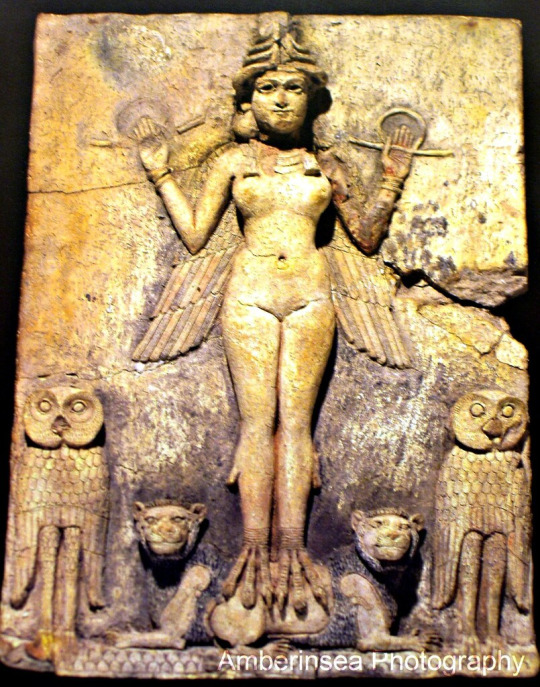
Ishtar is a Mesopotamian Goddess of love, fertility and war. Like many ancient deities, she was a dualistic deity, associated with life and death, making love and war as well as thunderstorms and food preservation. Ishtar was closely associated with Venus.
Ishtar, though responsible for all life is never considered a Mother goddess. She bore arms as the Goddess of War. She is a paradoxical Goddess figure with many contradictions; sex and violence, fecundity and death, beauty and terror, centrality and marginality, order and chaos. She occupies a liminal space and her influence spans every area of society, she governs all of civilization (think: the preservation aspect of all Venus nakshatras). She was even worshipped as the Goddess of transition between life and death due to her ability to come back from the underworld after she died.
She was widely worshipped in Mesopotamian society as an administrator of justice (see the parallels between Lord Yama and Goddess Ishtar?)
All of this gives us an idea about the highly complex nature of Venus. it amuses me when people think that Venus is some soft uwu nakshatra with bright colored aesthetics and cute lighting when the actual Venusian themes are of violence and war💀💀💀Venusian naks are hardcore af, let me just say that.
“Love is a smoke made with the fume of sighs; Being purg'd, a fire sparkling in lovers' eyes; Being vex'd, a sea nourish'd with lovers' tears; What is it else? A madness most discreet, A choking gall, and a preserving sweet.” ― William Shakespeare (Bharani Sun)
Bharani is closely associated with birth and procreation, however its cosmic function is "preservation" and not creation. This is because with other naks assigned the cosmic function of creation (ex: Ashwini & Punarvasu) creation must manifest from nothing. It manifests itself on its own; you are the creator and the creation. It is a spiritual and metaphysical concept, so to speak.
But Bharani is not associated with that sort of cosmic creation where the universe manifests itself from nothing, instead its connected to the most primitive and primal of human acts; copulation and procreation. Its directly associated with sex and reproduction. And this is not something that can happen on its own. by nature, procreation necessitates the union of man and woman. its not a symbolic act or a metaphor, it requires two people to get down and dirty. Creation of this sort is necessary to "maintain" or "preserve" our species; it does not arise out of nothing; certain prerequisite conditions have to be met in order for it to take place. this is why Bharani's purpose is "preservation".
from the minute that one is born, we are all on a journey towards death. Lord Yama embodies time because the actions we perform in the present can only be revealed in their true nature with time, i.e, whatever we sow, we reap but this is something that takes time. everything in life can be said to come down to timing. be it lessons learnt or success achieved.
its important to keep in mind that Bharani's aim is Artha
There are 4 aims, namely and each nakshatra has a specific aim assigned to it.
Dharma: doing what you are supposed to do. Fulfilling your soul in daily activities Artha: generating income and wealth so you can provide shelter and food for your body. Kama: going after your desires. Moksha: liberating your soul.
Venus itself is a planet associated with wealth, luxury, abundance, beauty etc
The first Venusian nakshatra is associated with the material aspect of Venus which is creating income and thereby attaining security. If we look at Maslow's hierarchy of needs and correspond it to the 4 aims, we can say that Artha is at the foundational base and Moksha is at the very top with Kama & Dharma located in between the two.
It is very telling that while Venusian nakshatras are split among Artha, Kama & Moksha aims, there is no nakshatra assigned the aim of Dharma, which is doing one's duty. With Venus there is no duty, no obligation, no decree; whatever one does we do out of love, this is the essence of Venus energy.
Therefore Bharani concerns itself with the most basic of needs, which is creating security for itself. It occupies the sign of Aries, ruled by Mars and we can say Mars represents the 'soldier'; it is raw, primitive and only concerned with survival.
As we progress through the other Venus nakshatras, we see how the aims ascend on the hierarchy, finally reaching its peak with "Moksha" or liberation in the final Venusian nakshatra.
Bharani is concerned with the most raw, primal and primitive of acts and located in the very first fire sign of Aries, it is an outcaste nakshatra and is the ONLY venusian nakshatra that is outcaste which is in itself unusual because Venus is concerned with refinement, grace, elan and elegance but the fact that the Venusian journey begins in a nakshatra that is outcaste with the aim of Artha implies one deep cosmic truth; in order for an individual to truly embody Venus and understand the planet's energies, you must first begin at the very bottom and ascend to the top. in Bharani, represented by the womb, we see the aspect of a human being taking physical form and being born, they are not born to riches or pleasures but in the most dire of circumstances, and they must now create security for themselves before they can even think of pursuing pleasures of any kind.
All Venusian nakshatras perform the cosmic function of "preservation" or "maintenance".
this is because they are all Manushya gana nakshatras, and human nature is one that's primarily best suited for this cosmic function over the functions of Creation or Dissolution (for deva gana and rakshasa gana naks).
Creation itself is the feminine principle but "preservation" is inherently masculine. Destruction or dissolution is a different expression of the same feminine principle.
All Venusian nakshatras are also of Pitta (fire) nadi
In Ayurveda, people with pitta are said to usually have a muscular build, be very athletic, and serve as strong leaders. They're highly motivated, goal-oriented, and competitive. They are said to possess an aggressive and tenacious nature.
The second Venusian nakshatra is Purvaphalguni, presided by the deity Bhaga, God of Marital Bliss. Purvaphalguni is symbolised by the front legs of the bed or a swinging hammock, indicating relaxation and comfort.
while Bharani was concerned with birth and death, in Purvaphalguni the association is with the sexual act itself.
Purvaphalguni's aim is Kama (desire) and this nakshatra is associated with love, romance, wealth, luxury etc.
Bharani's yoni animal was the elephant, a large yoni animal signifies the immense sexual appetite of the native but also the capacity for a certain breadth of experiences👀 with Purvaphalguni, the yoni animal is a rat, which is widely considered to be the most sexual animal as it copulates and reproduces at an immense pace. It makes sense as to why Purvaphalguni is about sexual pleasures and bliss and not about the how or the why; its purely concerned with the process. These natives are freaky af and the most openly and unabashedly sexual of all.
“Beauty is desired in order that it may be befouled; not for its own sake, but for the joy brought by the certainty of profaning it.” ― Georges Bataille (Purvaphalguni Sun)
Purvaphalguni men love the idea of corrupting something that is innocent and pure and making it filthy.many of them perhaps have a virginity kink 👀💀
In addition to this, Purvaphalguni men and Venusian men in general tend to exhibit the "Madonna-Whore Complex"

Jesse James (Purvaphalguni Sun, Bharani Mars) was married to Sandra Bullock and was outed as a serial cheater.

Tiger Woods (Purvashada Sun, Ketu in Bharani) was exposed as a chronic cheater (he slept with over 120 women during the course of his marriage) and spent time in rehab for his sex addiction.
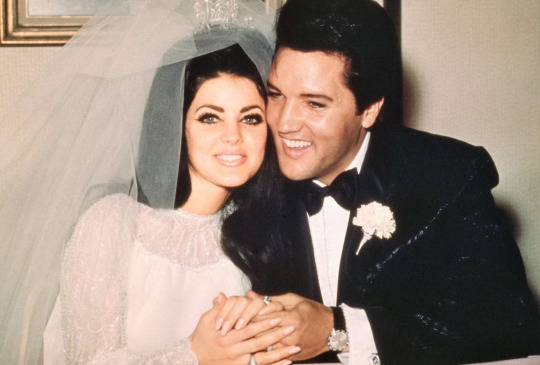
Elvis Presley (Purvashada Sun) met his wife Priscilla Presley when she was 14 and he was 24. He was hell-bent on "preserving her purity" and they had a very "chaste relationship" after she was married and had a baby however he did not want to have sex with her anymore because she was a mother.

In the 2002 movie Spider, Ralph Fiennes played a man who struggled with the Madonna-Whore complex. He has Mercury in Purvashada as his amatyakaraka.
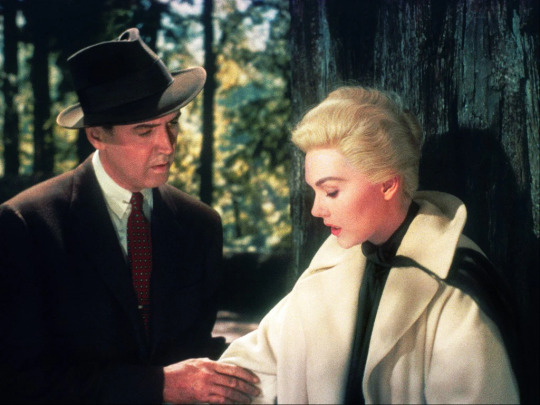
the movie Vertigo (1958) has this complex forming a major plotline. it stars James Stewart (Ketu in Purvashada) and Kim Novak (Mars in Purvaphalguni atmakaraka and Ketu in Purvaphalguni) as the lead actors.
The novel Portrait of the Artist As a Young Man features a protagonist who suffers from this complex and its the primary plot of the novel as well. Its written by James Joyce who is Purvashada Rising.
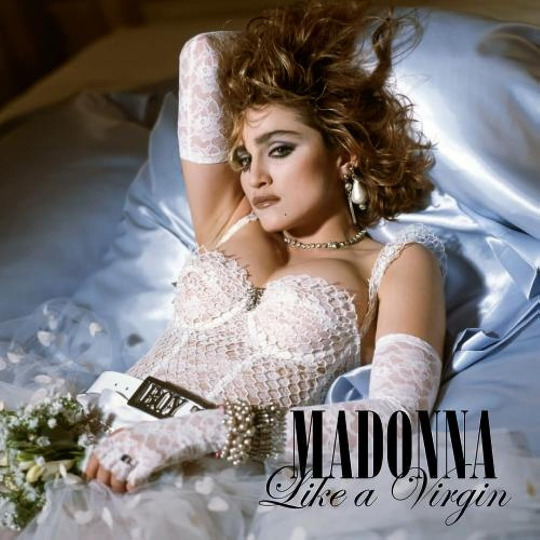
Madonna (Purvaphalguni Moon) often toyed around with the Madonna-Whore complex early on in her career and even has a song called Like A Virgin, the lyrics go like this:
"Like a virgin Touched for the very first time Like a virgin When your heart beats next to mine
Gonna give you all my love, boy My fear is fading fast Been saving it all for you 'cause only love can last You're so fine and you're mine Make me strong, yeah you make me bold, oh, your love thawed out Yeah, your love thawed out what was scared and cold."
Since Purvaphalguni is symbolised by the marital bed, and the consummation of the marriage was always associated with "losing innocence and virginity" and how sexual experience is linked with "knowing" and maturing from child to adult.

Black Swan, starring Natalie Portman (Purvaphalguni Moon) and Mila Kunis (Purvaphalguni Mercury & Venus) is a sexually charged movie that explores this dichotomy very well. Nina is a good little girl whereas Lily is highly sexual and wild.
A major theme of this movie is merging these two opposing forces. For good girl Nina to embrace her dark, wild "Black Swan" side. (spoiler alert!!) obviously in this movie, Lily's character is said to be an extension of Nina and not a real person which drives home this point even further.
Losing innocence and corruption/being corrupted are major themes in Purvaphalguni nakshatra and this is not just sexual. An ordinary person losing all sense of morality and submitting to utter debauchery and depravation is a common trope found in the works of many Purvaphalguni natives.

Take the movie, Taxi Driver, for example, it was written by Paul Schrader who has Bharani Moon, Purvaphalguni Venus & Mars
This movie revolves around Travis (the titular Taxi Driver) who is experiencing an extreme existential crisis and is deeply troubled by the prostitution he witnesses around the city; he is unsettled by the moral bankruptness and urban decay around him. He sets out to rescue a child prostitute and the movie has major elements of sex and violence.
This movie is a good example of Bharani's restrained Venusian expression meeting with Purvaphalguni's excess.
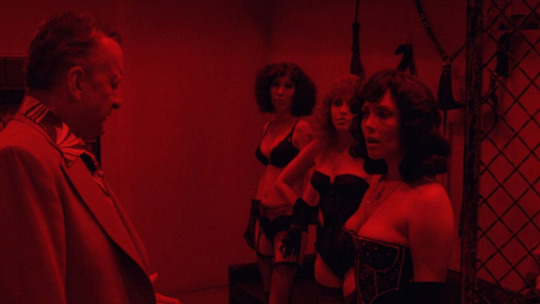
Hardcore (1979) directed by Paul Schrader (honestly all of the movies he's written and directed are LOADED with Venusian tropes, themes and motifs) is about a father who goes looking for his daughter who went on a church trip to Cali and ended up working as a porn star.
Like I've mentioned before, the dichotomy between innocence and corruption, divine and human, Madonna and Whore are core themes in the works of these natives. Like Taxi Driver, the protagonist has to descend into hell in order to save the person who is lost. The contrast between "polite society" or the prim & proper "morally upright" side of society versus the depraved, sleazy, immoral underworld is depicted in a very stark and raw manner.
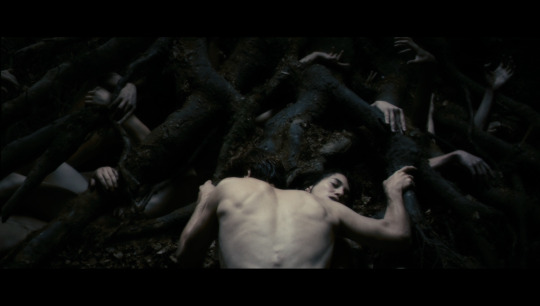
Antichrist (2009) directed by Lars Von Trier (Bharani Sun, Purvashada Moon) and starring Willem Dafoe (Purvaphalguni Moon, Purvashada Rising) is another movie that explores Venus at its most chaotic, unrefined and truthful. Its about a grieving couple who lost their son and go to a cabin in the woods to cope but of course, crazy shit starts happening and is rife with sadomasochistic elements.
Purvaphalguni is the height of Venus, located in the sign of Leo which is ruled by the Sun; here a native loses all sense of ego or pride and gives in completely to their pleasures and desires. Its a very hedonistic nakshatra. Given that its aim is Kama and is a Manushya gana nakshatra, it points to how a native is willing to do anything to attain what he desires; there is no sense of "right" or "wrong" here because Venus is a planet of indulgence.
In Bharani, presided by Lord Yama, the themes were strongly tied to karma, justice, time etc but this is the initiatory stage of Venus, where Venus acts with restraint. In Purvaphalguni, Venus is at its most expansive and wild. Bharani's yoni animal is an elephant; are elephants known for being very sexual? no. they are known for how they protect their herd and how nurturing they are of their young ones. Compare this to the rat (Purvphalguni's yoni animal). Rats have millions of kids and don't stick around to care for them particularly. Since they procreate at such a fast pace, it's every rat for himself. they are associated with filth and dirt.
Its very common for Purvaphalguni men to be involved in sadomasochistic sexual activities; in fact, two of the most famous writers to address these themes, Georges Bataille and Marquis de Sade both have Purvaphalguni Sun & Moon respectively.
“Life has always taken place in a tumult without apparent cohesion, but it only finds its grandeur and its reality in ecstasy and in ecstatic love.”― Georges Bataille (Purvaphalguni Sun)
"Lust is to the other passions what the nervous fluid is to life; it supports them all, lends strength to them all ambition, cruelty, avarice, revenge, are all founded on lust.”― Marquis de Sade(Purvaphalguni Moon with Ketu in Purvashada)
As such, many Purvaphalguni men have been involved in some type of sex scandal at least once in their career.
Nabokov who wrote Lolita had Purvaphalguni Moon and its a book about a old man who falls in love with a child. Like I said previously Purvaphalguni/Venusian men in general tend to have a virgin kink/a thing for innocence and corrupting someone and derive a sense of satisfaction from it.

in the 90s, Hugh Grant (Purvaphalguni Sun) was caught with a prostitute while he was in a long term relationship with Liz Hurley.

Freddie Mercury (Purvaphalguni Sun & Rising) was known for his wild and freaky love life, he openly spoke about his "enormous sex drive", he once celebrated his birthday with a 5 day orgy💀💀

Namjoon (Purvaphalguni Sun) received flak for recommending the book Almost Transparent Blue which featured graphic sexuality and violence including threesomes and rough sex. In his early career, he also received flak for his sexually suggestive songs like "Expensive Girl", "Trouble" and "Joke".
I don't want to go into this because I don't think there can be astrological evidence of someone being an abuser (i.e anyone could be any abuser regardless of their placements) but many Purvaphalguni men have had sexual harassment charges pressed against them.
“One must do violence to the object of one's desire; when it surrenders, the pleasure is greater.”― Marquis De Sade (Purvaphalguni Moon with Ketu in Purvashada)
This nak is the height of Venusian indulgence and as every peak is followed by a valley, Venus after ascending through the aims of Artha and Kama, now finds itself in the concluding Venus nakshatra of Purvashada. The aim of this nak is Moksha. When all else is satisfied, the only thing left to do is seek salvation.
Purvashada's yoni animal is a monkey and Purvashada belongs to the Brahmin caste. It is a Manushya gana nakshatra.
It is symbolised by “a fan/winnowing machine which separates grains from the husk”. It occupies the sign of Sagittarius and thus its sign lord is Jupiter.
The deity of Purvashada is 'Apah', Goddess of Water/Ocean.
In the final Venus nakshatra, the themes of refinement and purification are at their height. There is a relentless desire for expansion and the combined energies of Jupiter & Venus together can make a native simultaneously expansive but still constricted at the same time. Purification is a major theme in this nak. Bharani was concerned with birth and creation, Purvaphalguni with the sexual act in itself but in Purvashada, the Venusian focus shifts beyond either of the two.
Although Magha is most commonly associated with the "Goth" aesthetic, I would say even Purvashada natives have a tendency to lean towards a darker, macabre aesthetic.

Ozzy Osbourne (Purvashada Moon) was lead vocalist of the heavy metal band Black Sabbath and called himself "Prince of Darkness".
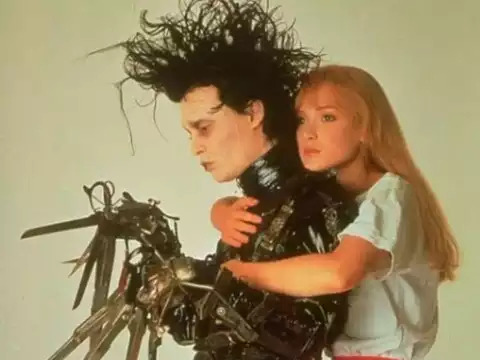
Johnny Depp (Purvashada Moon) stars as Edward Scissorhands in the movie of the same name. The movie revolves around an artificial humanoid creature who tries and fails to adjust to normal society despite the efforts of those around him. He falls in love with a woman he cannot be with. This is a common trope in the works of many Purvashada natives.
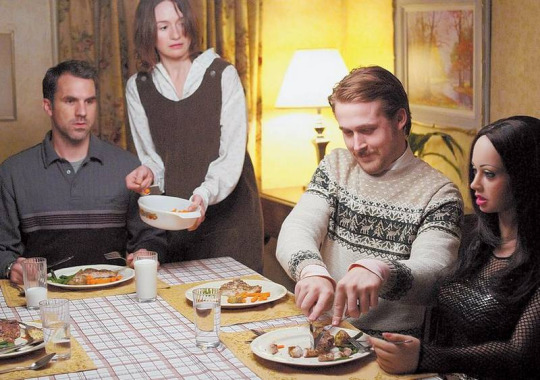
Lars & the Real Girl (2007) stars Ryan Gosling (Purvashada Moon) as a socially awkward man who begins to have a relationship with a lifelike doll believing her to be real. His family tries really hard to help him and ultimately (in a very Purvashada esque ending; because of Purvashada's connection to water) he believes that the doll is dying and mourns for her while submerged in water.

Charles Addams who created The Addams Family had Purvashada Sun (he was also Magha Moon), Morticia Addams was played by Carolyn Jones who was Bharani Sun & Moon, in the 90s adaptations she was played by Anjelica Huston who had Purvaphalguni Moon & Ketu

in the movie City of Angels starring Nicholas Cage (Purvashada Sun) the theme of a human and non-human being uniting is once again repeated, this time, Cage plays an angel who falls in love with a mortal woman. (spoiler alert!!) the movie ends with Cage choosing to be a mortal but his human lover passing away tragically. In true blue Purvashada fashion, the movie ends with Cage near the ocean, accepting his grief and new life as a mortal being.

in Francois Truffaut (Purvashada Rising) Jules et Jim, we see the tale of two men who both love the same woman, Catherine. The story repeats the same trope of how neither man gets to truly be with her (true union being impossible is a common Purvashada trope) and the movie ends with her driving Jim and herself into a river while Jules watches on. (death in the water or mourning someone in the water etc seems to be a common motif in the works of these natives)
“Love (understood as the desire of good for another) is in fact so unnatural a phenomenon that it can scarcely repeat itself; the soul being unable to become virgin again and not having energy enough to cast itself out again into the ocean of another soul.”― James Joyce (Purvashada Rising)
“The best people possess a feeling for beauty, the courage to take risks, the discipline to tell the truth, the capacity for sacrifice. Ironically, their virtues make them vulnerable; they are often wounded, sometimes destroyed.”― Ernest Hemingway (Purvashada Moon, Purvaphalguni Rising)
Hemingway's most famous work is titled The Old Man & the Sea and its set almost entirely on the water/the beach.

Christina Ricci who is best known for playing several dark edgy characters is a Purvashada Moon (she's also Magha rising)
I've also noticed that certain Purvashada natives have associations with Satanism 💀💀 or star in films that feature violent, gorey rituals etc

Rosemary's Baby stars Mia Farrow (Purvashada Moon) and Satanism is a major part of the movie's plot 💀

Zeena Schrek (Purvashada Moon) is the daughter of the founder of the Church of Satan and was the first baby to undergo a Satanic baptism. She's probably best known for conspiracy theories stating Taylor Swift is her clone lmao 💀😭

While Jennifer's Body's main story can be considered an Ashlesha themed one, there are significant allusions to the occult, virgin sacrifice and demonic possession which makes me believe it can be attributed to Megan Fox's Purvashada Rising
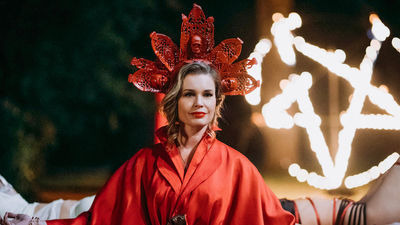
in the movie Satanic Panic (2019), Rebecca Romijin (Purvashada Rising) stars as the leader of a satanic cult.
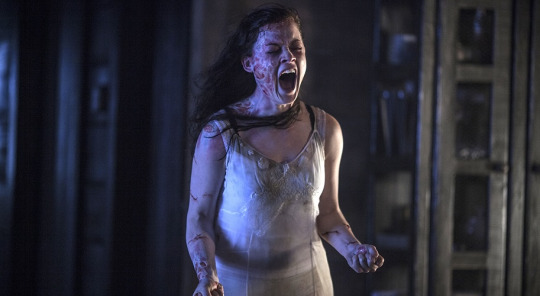
Jane Levy (Purvashada Sun) starred as the protagonist in the 2013 film Evil Dead that features a lot of demons and demonic possession.

Nina Dobrev (Purvashada Sun) is best known for playing Elena on the show The Vampire Diaries. while i know demons and vampires are not the same, you've got to admit they share a lot of similarities xD
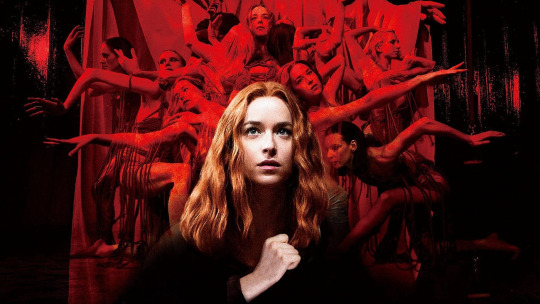
Dakota Johnson (Purvashada Rising) stars in Suspiria which is about a young woman who accidentally finds herself in a cult/witches' coven.
Some very well known people who could be called evil personified are also Purvashada natives, such as Hitler and Harvey Weinstein (Purvashada Moon)
Purvashada natives love to play the devil's advocate, the quality we most associate with a monkey (this nak's Yoni animal) is its playfulness. Purvashada natives do things simply for the heck of it/thrill of it. There is no sense of purpose or direction to which their Venusian qualities are directed. Thus it represents the dark side of Venus. When all other desires are fulfilled and the only thing left is to seek Moksha, the nakshatra tends to exhibit the Trickster archetype.

the 2002 movie May, stars Angela Bettis (Purvashada stellium; sun, mercury, jupiter and rahu) and depicts the cruel and sinister side of Venus very well (trigger warning; this movie is VERY gore-y), its about a woman who ritually murders several people who she did not feel loved by (to put it simply).
While Bharani being the initiatory Venus nak is Venus at its most ethical, all sense of "right and wrong" evaporates into thin air as the Venusian journey progresses. In Purvaphalguni, this manifests as a desire for sex itself but in Purvashada, the native is dissatisfied with mere bodily union, it seeks something bigger. This theme of union being impossible/not satisfying can be seen in the works of many Purvashada natives. The desire to delve into the occult arises out of a desire to transcend ordinariness, find something that addresses the darkness and uncover the truth within it.
The Venusian journey passes through the sign lords of Mars, Sun & Jupiter; beginning as a soldier, working out of a sense of duty, reaching its height in the individualistic Sun, seeking pleasure merely for one's own sake and finally concluding itself in the expansive Jupiter where things get unusual. Venus is a complicated planet full of contradictions and combining its energy with that of Jupiter which expands beyond control means the darkness of Venus makes itself seen in ways we don't quite see in the same way in the other naks.
The tattvas of these naks are earth, water and air respectively. It originates in a very grounded fashion, full of practical concerns, then dissolves itself entirely in the formless water before becoming the element that's hardest to narrow down; air.
Bharani with Aries, Purvaphalguni with Leo and Purvashada with Sagittarius and all these signs are traditionally perceived as masculine and the Fire element in general is understood as masculine. The opposite of fire is water, which is feminine (water being related to the Moon, which is a yin planet) whereas fire is related to the Sun which is a yang planet.
it is the combination of masculine with feminine that heightens the effect of the other. a highly masculine man or a highly feminine woman have integrated the opposite energy within them fully; they are internally almost androgynous . they dont lack the influence of the other
in Bharani, we have the womb and creation, in Purvaphalguni we have the bed, in Purvashada, we have the winnowing basket, separating the husk from the grain, depicting the different functions of Venus; as source, hedon, and order.
#sidereal astrology#astrology notes#vedic astro notes#vedic astrology#nakshatras#astrology#astrology observations#astroblr#astro notes#astro observations#venus#bharani#purvaphalguni#purvashada
438 notes
·
View notes
Text
If I were a cruel goddess I would turn every transphobe into a gender different from what they were assigned at birth. They wake up, maybe it takes them a moment to realise, maybe it takes them to put their clothes on, or maybe they'll speak a word or two, or look at the mirror. Boom, you are now completely and fully 100% the opposite sex, with the same memories and the same identity as you were the night before.
I wonder how they would react. Would they embrace their new role? Would they scramble to reject it and transition as fast as possible? How many of them would remain transphobic? Would they still separate themselves from trans people?
54 notes
·
View notes
Text
Vegeta's Mother Headcanons/Backstory (with Lots of Saiyan Culture Worldbuilding)
As promised to @blueper-saiyan, here is the backstory I've made up for Vegeta's mom and some of the royal family! I've literally thought about writing a saiyan Game of Thrones style fic about how King Vegeta came to power and how Vegeta's mother became queen. If, after reading some of the backstory, such a fic sounds fun to read, I might write it someday. Let me know!
(This post came up as part of a wider discussion about saiyan cultural/religious differences. Read here if you're interested, but the post will only enhance this one, and you don't need to read it for the backstory to make sense.)
To begin with some general information about how royal succession functions: There are four nations on Vegeta-sei, each with their own lands and cultural identities. When the heir to the throne reaches an age equal to three cycles of Vegeta-sei's moon (25 Earth years, roughly), they are bound to one consort from each nation. These consorts are within one moon cycle of the heir's age and can be any sex; measured strength at birth/assigned social class determines who is selected. (Anyone, however, can challenge the selected consort for their right to be bound to the heir apparent. If the challenger defeats the one originally selected in a duel, the challenger then becomes the new consort.) The "wedding" itself takes place in the weeks leading up to the first nights of the full moon after the heir turns 25.
The role of royal consort is a political one as much as it is about producing heirs for the royal family. Indeed, the consorts are not always reproductively compatible with the heir apparent. (This plays into another web of headcanons I have: gender/sex isn't really a big deal in saiyan cultures; they care far more about class/strength, and even the way they speak reflects this. Saiyago refers to people by class and not by sex/gender; there are no gendered pronouns.) The consorts function, essentially, as representatives for their nations. They are the highest ranking nobles/elites of their respective countries. The position comes with considerable political power and influence. There are motives, then, for someone to want to become a royal consort even if they cannot produce children with the heir.
Obviously, though, producing royal children is one of the main purposes of a consort. Those that are reproductively compatible with the heir are expected to engage in the necessary activities. And the consort who provides the crown with the strongest child assumes the title of king/queen consort, granting both that consort and the nation they represent special privileges, power, and influence. So even if there are motives for someone to want to be a consort regardless of reproductive compatibility, compatible consorts are preferred most of the time, and incompatible ones are often challenged. (Or, alternatively, certain conniving nobles might manipulate power level/class archives to ensure the person they want is "chosen by the gods" to stand at the side of the crown. Lots of fun GoT style shit here.)
So this brings us to Vegeta's mother:
She was the strongest (still living) saiyan born in one of the four nations within an appropriate age range to the heir apparent. Specifically, she is from the nation of people who occupy a collection of islands near one of the planet's poles. As mentioned in the long post I linked, this nation centers Oozaru transformation in their cultural/spiritual consciousness as opposed to SSJ transformation. The primal beast vs. the Enlightened Warrior. People from her country speak of a special bond to the moon goddess because, due to their location at the pole, they experience seasonal polar night. Whole seasons of nothing but the moonlit sky, and alternatively, seasons where they are waiting for the goddess rule the sky again.
And because they center the more wild, primal, and impassioned transformation, they are at odds with the culture in the royal city and the (most populous and influential) nation that surrounds it that centers SSJ transformation which is, supposedly, passionless and enlightened (in the Eastern sense). The unique cultural practices, powers, and techniques the people from Vegeta's mother's lands boast are therefore looked upon with skepticism by most other saiyans. Most saiyans don't know what to do with this essentially foreign group of people from sparsely populated polar isles who have strange ways. Some of them are even rumored to sense ki without scouters. The most powerful of them can even dissolve the borders of their mind as happens under the moonlight so they can communicate to others without speaking, soul to soul. (It's mild telepathy, basically. Speaking with the mind, being able to share thoughts/dreams; very skilled people might even be able to read others' minds in a limited capacity.)
And Vegeta's mother is one of those exceptionally gifted saiyans from this country/culture. But nobody cares or finds out about this until later. Because...King Vegeta was not the original heir to whom she would've been betrothed. The saiyan who became King Vegeta was a weaker/lesser royal child. One of his sisters, however, was the crown princess. And she was batshit insane.
King Vegeta's sister was exceptionally cruel. Even for a saiyan. And she came from a long line of rulers who were almost as cruel and insane as she was. Her lineage, in fact, is part of the reason saiyans are infamous throughout the galaxy. She and other corrupt royals/elites don't fight because fighting is what saiyans do. They don't fight for the sake of itself. They fight to shed blood, to kill, to revel in others' pain, destruction, and misery. The sadism is the point, not the art and joy of fighting. And they don't kill in a cold, unattached way. They rape and pillage because they are consumed with bloodlust, they get off on hurting others, and they are strong enough that few can stop them.
(Another topic I could write a whole other long post about: There is certainly considerable disagreement among different saiyan cultures about what their "fighting nature" actually entails. Is it about the excellence in craft? Is it about spiritual enlightenment? Is it about feeling at one with the body, the opponent, and the universe? Or...is it about defeating and destroying your rival? Is it about being the strongest? Is it about pain and domination? There are competing narratives for what the Ideal Saiyan looks like and about how that saiyan would fight. For someone like King Vegeta's sister, she and most of her family lean more towards fighting-for-domination/bloodlust because power has gone to their heads and warped them into something monstrous.)
And (not yet) King Vegeta sees all of this, and because he's one of the weaker children of his family, he faces considerable abuse. Naturally, he tries to prove himself by showing exceptional cruelty of his own, waging wars and conquering planets... But he never actually wins the approval of his family or the rest of the elite class. He becomes somewhat estranged. He comes to resent and look down on his parents and his sister especially. He sees their monstrous ways and turns away from them not because he sees their actions as evil, but because he comes to see their hearts as impure. He listens to the words and warnings of religious extremists around the royal city's temples who condemn the nobility for their impassioned bloodlust where they should instead be cold and tranquil when they fight. He becomes a bit of a fanatic himself.
Then his sister reaches the age where she's to be bound to consorts. And the moon festival is approaching and therefore her "wedding." She doesn't treat the consorts chosen for her like the esteemed nobles they are, however. She captures them and tortures them publicly to put fear in the hearts of everyone in their countries. On the night of her "wedding," she makes a humiliating display of them in the royal city's moon temple. It's pretty obvious that, once the ceremony is performed, she's intending to rape her consorts and perhaps kill the ones who can't provide children for her. Vegeta's mother is one of these consorts.
Vegeta's father is fucking disgusted by all of this. His sister is doing something absolutely sacrilege. She's using power in the most impure way possible, and she's literally desecrating altars doing so. It sets him the fuck off. He's watching the beginnings of the "wedding ceremony," but it's the last straw. While everyone's caught up in what's happening, he comes to the front of the temple and blasts his sister straight through the heart before she can touch any of the consorts, killing her instantly. And he doesn't stop there. He goes positively feral and kills every single member of the royal family while everyone is too shocked or drunk/high to defeat him even though he's not the strongest based on power level alone.
Covered in the blood of the king, queen, and all of his siblings, Vegeta's father calls upon any "righteous" saiyan to purge the royal lands of corruption. Certain religious extremists are all too happy to oblige (the tailless ascetic order from the other post is certainly included here). They begin with powerful elite families known to be close to the crown, murdering their figureheads and heirs. And even some lower-class saiyans join in on the bloodshed. Many of them despise the royal family and the elite nobility for degrading and abusing them. (Some particularly wicked nobles make slaves of low-class saiyans, treating them like aliens/animals; some of them even take children from low-class families to slake their most despicable lusts. While might-makes-right may be pretty commonplace in saiyan culture, I think it's still extremely feasible that those who get the short end of that stick would come to acknowledge that power does not justify every action, and that, especially among low-class saiyans, things like rape and murder of other saiyans are seen as traumatic and wrong as well as shameful acts to commit most of the time.)
The nights of the full moon, then, become a massive fucking bloodbath. Vegeta's father and those loyal to him massacre pretty much half of the nobility. And he, naturally, assumes the throne after the moon festival is over. He is at once respected and feared. He maintains his religious fanaticism and imposes it on the nobility. In some ways, he is just as iron-fisted and cruel as his predecessors, but it has an entirely different flavor. He follows the laws to the letter, taking them very seriously and giving them intense spiritual weight. He strives to emulate the model of the SSJ Enlightened Warrior and considers it his calling as dictated by the gods because they appointed him king.
And while he's not morally "good" by any stretch, and his religion/philosophy definitely leads him to commit some truly heinous acts, he's nevertheless "better" in many ways than his sister or his parents. Nobles who, for example, would have before taken low-class children to abuse are instead punished severely and pay dearly for their "impurity." (It kind of makes sense that someone like King Vegeta who faced significant childhood abuse from his family would consider taking advantage of certain kinds of vulnerable people to be weak and shameful---a corruption of strength.) And while King Vegeta isn't necessarily loved by all low-class saiyans, he's probably more popular than many of his predecessors were. Yes, he still ships off weak children, he still enforces the strict caste system (perhaps even more strictly than those before him too), and he still conquers planets and seeks out powerful opponents to destroy, but he does it with a certain spiritual sincerity.
Then it becomes time for him to take consorts. He's in a pretty unique situation where he's already king before he's "married." After the murder of his sister on her "wedding night," he frees the consorts from their bondage and tells them they can return to their homelands until the gods call upon them to perform their duties. They are more than happy to get the fuck out of the royal city for a while, naturally. But when the next moon festival is approaching, those selected are asked to return. One or two of the consorts his sister would've "wed" had perhaps fallen in battle, but most of them are the same, including Vegeta's mother.
Vegeta's mother and her homeland had been happy, initially, that she hadn't been reproductively compatible with the original heir, King Vegeta's sister. The moon-worshiping people wanted as little to do with the royal city as possible so they could govern their own lands in relative isolation. Now, however, her position as consort carries with it an implicit obligation.
In the years leading up to the next moon festival, Vegeta's mother of course visits the royal city a number of times given that she's an important noble personality. But she doesn't spend most of her time there and only goes when absolutely necessary. She crosses paths with the king, naturally, but avoids him if she can. She remembers, however, the night where he, essentially, saved both her life and her honor (though this was not his primary reason for freeing her). Even so, she's been bracing for the king to go insane like his predecessors. Perhaps bracing herself for him to force himself on her in some way. She doesn't trust him. She doesn't trust anyone outside of her homeland.
But the king is strictly business with her even if he does watch her. She's mysterious; he hardly sees her. She doesn't look like many other people in the royal city. She has different manners, beliefs, and even speaks a different dialect of Saiyago (though she can code-switch and speak the standard royal city dialect as well). She has a small, very feminine frame despite having a very formidable power level. It makes her more terrifying in some ways---that her power comes to her effortlessly, that she doesn't need physical strength or size to wield as much might as she does. She is regarded as extremely beautiful and is compared even to depictions of the moon goddess. Her being from the moon-worshiping polar isles reinforces this connection as well; she has an air of pagan magic about her, and her beauty as well as her strange ways/fighting techniques have this spellbinding or bewitching quality to them in saiyan cultural consciousness.
And her beauty, mystery, and foreign background make her the subject of scorn among many nobles throughout the royal lands. They don't want a pagan queen. Especially since the nobles that remain are ones that are more in line with the religious fanaticism of King Vegeta. The king has very recently purged the nobility of corrupt heretics, people who gave themselves over to shameful bloodlust and made no attempt to purify their hearts and live up to the Saiyan Ideal. And the prospect of having someone who is all about losing yourself and becoming the wild Oozaru become their queen is threatening. Many assume, too, that King Vegeta simply won't favor Vegeta's mother for these political reasons and will instead produce heirs with his other consorts.
That doesn't stop King Vegeta from developing a huge fucking crush on her, though. She's drop-dead gorgeous and incredibly powerful. She doesn't fawn over him or try to win his favor. She steers clear of him, and when they do have to interact, she doesn't filter her foreign/pagan sensibilities whatsoever to be pleasing. She always approaches him as herself and comes off strong. She even outright opposes or argues with him when matters of governance/policy arise. She makes very clear that her people don't care for the traditional caste system or how children are measured for their power at birth. She reminds him that the strongest and most wise of her people can sense hidden abilities in others' souls that scouters can't capture with a mere number.
Ironically, though, Vegeta's mother approaching King Vegeta sincerely as herself makes him fall for her even harder. Those precious few times she sees him in the royal city become almost special occasions for him; he waits for her, he looks forward to seeing her even if he's out of touch with it. He relishes their philosophical debates. As someone who takes his "divine" calling very seriously, he admires her own spiritual passion and sincerity even though they disagree on some basic things and have very different ideas about what the Ideal Saiyan looks/fights like. He makes excuses to talk to her and spend time with her. He probably even constructs situations where he is forced to consider her political input. He desires her and feels that the gods gave their blessing for him to desire her by choosing her for him. She, however, rejects even the smallest advances very strongly. And he, nothing like his sister in this respect, does not punish her or pressure her to accept him. He carries on with his other royal duties.
As the moon festival and therefore the official royal "wedding" approaches, however, Vegeta's mother eventually refuses even to attend the ceremony. (Makes sense, after all---last time, an insane princess meant to torture, rape, and murder her.) Many elites encourage other people from the polar isles to challenge her, replacing her with someone who will not shirk their duties. Elites hostile to the moon-worshipers call for her capture and possible execution. King Vegeta, though, requests only that she attend the ceremony if no one will challenge her and vows that she may return to her homeland once it is over, and neither he nor anyone will touch her under pain of death. She eventually accepts this offer. Her limited interactions with the king have at least shown her that he is generally a man of his word, and she will be able to maintain her political influence over him while getting to stay in her homeland and not fear retribution.
The ceremony takes place and is a very somber affair. Think the most traditional, by-the-book royal wedding ever (just with more fighting because they are saiyans). Vegeta's mother returns to the polar isles the very night the ceremony is over, though, as the moon festival nights are sacred to her people, and she has no desire to spend them in the royal city. The king lets her go as promised. The other nations are happy to see her go, as the more time the king spends with his other consorts, the higher the likelihood that the consort that represents them becomes queen. The king does indeed spend the first few nights in the royal city as expected. But...he does something scandalous before the moon festival is over.
He goes to the polar isles. He participates in some of their festival activities (ritual Oozaru transformations, battles, hunts, and sacrifices). He frames it as a gesture of political good will, saying that he will be a king to all saiyans no matter their nation or favored gods/goddesses. He strives to live up to the example of his Super Saiyan ancestors and will seek strength and wisdom in whatever form the gods will reveal it to him. Even if it means listening to pagan moon-worshipers and hearing what they have to say, what knowledge and power they have to impart. He means it sincerely, but his gesture was obviously inspired by his preoccupation with Vegeta's mother.
He doesn't make any attempt to get close to her personally, but he does transform under the moon with her. And afterwards, when some time has passed and he asks her to come to the royal city, she accepts.
She tells herself it's in service to her nation. Not in many generations have they had the crown at their mercy like this. She knows she has the power to influence how saiyan life itself is ordered. She still may not want to give King Vegeta a child or become queen, but she does want to take advantage of the opportunity his favor affords her.
She's there when Freeza and King Cold first contact the saiyans. It's obvious to anyone who was in direct contact with Freeza just how powerful he is, how much manipulative leverage he holds... But Vegeta's mother can sense something is deeply off about him and the entire situation. She's fully aware that Freeza will straight up destroy everyone if they don't enter his service. And she doesn't have the same delusional pride that the king does. She knows he's going to have to bend the knee if they mean to survive. It's because of her influence that King Vegeta doesn't enter a doomed war with Freeza at the start. She helps him acclimate the people to their new "alliance"---emphasizes better access to technology like scouters, healing tanks, ships, and incubation pods. She's a much better and more natural ruler than King Vegeta is, in fact. She brings a certain "humanity" (saiyanity?) to the role---it's about safeguarding the people and their way of life, not about proving that she personally is the strongest.
Naturally, this pivotal political role she plays brings her and King Vegeta closer together. She'd already been developing feelings for him slowly. She already knew he was different after he killed his entire family and spared her from their wickedness. And as she got to know him better, she really came to admire his own sincerity just as he admired hers. They are both deeply spiritual people even though they have different beliefs, and they have an understanding of each other. And the time they spent under the moonlight together was, after all, quite romantic even if saiyans don't really have "romance" the way humans do.
She admits to herself after a while that she's attracted to him. Sure, part of her definitely enjoys being queen in all but actual title. She enjoys how hopelessly this extremely powerful and austere man bends to her every whim and worships her as if she were actually the moon goddess herself and had indeed bewitched him like all the rumors say she has. Even against his better political judgment or his religious sensibilities. He can't help but revere and admire her. You know, saiyans having a thing for strong women.
She's the one who goes to him first. She tells herself initially that it's merely to consolidate her power, her hold on the king. He, of course, can't resist her and just completely fucking melts for her when she commands him to meet her in her bedchambers. But it's clear that it's neither about duty nor politics as they continue to be intimate. They are in love with each other. They connect on a soul level.
She eventually does become pregnant, though it is no guarantee that she will become queen even if she does provide the crown with a child. She would have to produce the strongest child to be crowned queen, after all, and sometimes which child is strongest does not become apparent until later. But...when Vegeta is born, he's leagues ahead of the other children that had been born already (he has a number of half-siblings). He's the strongest royal child born as far as the archives go back. It's unprecedented, but he's named heir to the throne immediately, and his mother assumes the title of queen at the same time he is named crown prince.
That Vegeta's mother bore him such a powerful son just makes King Vegeta fall that much more in love with her. He takes it as a sign, even, that the gods rewarded him for his piety. That he had done the right thing by murdering his entire family (as much as it still hurt to do, deep down, even if he'd never admit it). That perhaps his son was born so strong because the two sides of saiyan nature were for once at harmony with each other, the Oozaru and the Super Saiyan, just as he, descended from the Super Saiyans, learned to love and fight alongside his moon-worshiping consort. He dares to hope that maybe Prince Vegeta will become strong enough to overthrow Freeza and cast off the shame of servitude.
But there's trouble in paradise. The nobles from the other nations are absolutely appalled that the moon-worshiper from the tiny, pagan population of the polar isles has become queen. Many of them do actually think that she put the king under a spell to do her bidding. They don't like that her battle partner, Nappa, was originally low-class (but elevated once the queen came to the royal city---another cultural difference; it's not as taboo for nobles to have low-class partners in the polar isles because their caste sensibilities are not as strict). The fact that the king bent the knee to Freeza just makes things worse. He's weak. He'll lead them to ruin. He's easily manipulated. He listened to a sorceress instead of his own integrity and pride by submitting to Freeza where he should have instead gone to war and proven his strength as his ancestors did before him.
There's unrest among the lower-class saiyans too. Freeza ships them off to faraway planets for degrading assignments. He takes saiyan children to his planet, and they never return. They hate Freeza even if they are encouraged to be grateful for the battles and resources the Planet Trade affords them. They resent the royal family even if the prince is so strong that they can't help but be inspired.
Several elites challenge the queen to fight. She proves victorious each time, however. And this only infuriates her detractors and rivals even more. Eventually, there are plots to dispose of her via less than honorable means. There are assassination attempts. Those that are caught are of course tortured and executed. But...sadly, one of the attempts succeeds. The queen falls ill, and poison is suspected. She begins to deteriorate rapidly, but she doesn't die immediately. Her body resists the illness, and she lingers for a time even if she knows that, ultimately, her death will be inevitable and painful.
King Vegeta, understandably, goes on a fucking rampage. But there's a distraction. Freeza attends a tournament to decide who will become Prince Vegeta's battle partner, and he finds Prince Vegeta himself to be rather remarkable. Soon afterwards, he demands that King Vegeta send the prince to "visit" him on his home planet. He wants to take the prince in and mentor him as a mark of the "friendship" between Vegeta-sei and the Cold Empire.
The queen, however, does not want to give her son over to Freeza. She fucking knows how that will go down. She can feel it. Vegeta will be examined, experimented on, tortured, treated as a pet and a slave. She doubts that the SSJ legends are even real; she's of the opinion that it's just another interpretation of the Oozaru. So she's under no illusion that Vegeta will transform and save them all from Freeza at just the right moment. She knows he's just a little boy at the end of the day, however strong he is already.
Plus...she knows she's dying, and she doesn't want her son taken away from her. She doesn't want her last days to be spent knowing she gave him over to a monster. But at the same time...she also knows that, if Freeza doesn't take Vegeta, then it will put the entire planet in danger. She takes a page from the king's book and tells herself that she'll have to set her personal feelings aside to do what is rational even if it isn't quite right. So she requests only that the king doesn't let Freeza take Vegeta until after she's gone.
The king, meanwhile, is in fucking denial that she's dying at all. He doesn't want to believe it. He's caught up in his feelings about it. He's caught up, too, in the fear and dread their oh-so-tenuous relationship with Freeza is. He says he'll go to war with Freeza. That he won't let him take their son at all. But they both know that they have to. He copes with it by telling both himself and Vegeta that Freeza's "mentorship" and the opportunities his assignments will afford will make him stronger, will perhaps move him to transform when the time is right. The king doesn't explain to the child what he's really in for, just that he must be strong above all else. Vegeta's mother, though, probably tries to warn him in some capacity, as far as he is able to understand (he's about 4 Earth years old at this point).
Freeza, though, comes to collect Vegeta unannounced sooner than anyone expected. He is forcibly taken from his mother. She puts up a fight, but it's useless, and Vegeta ultimately goes to Freeza's home planet to begin his servitude. The queen dies soon afterwards, and when Vegeta returns to Vegeta-sei for the last time before the planet is destroyed, his mother is gone. He never got to see her again after the day he was taken away.
King Vegeta is consumed with grief and anger. He acts according to his worst impulses. Wages reckless wars, tortures people just to watch them suffer. It doesn't help that the person who was the actual political mastermind behind his regime (the queen) is gone. His rule is messy, and he becomes increasingly unhinged. He probably tries to make an incredibly stupid final stand. His actions certainly accelerate Freeza's plan to destroy him and the rest of the saiyans. And this is where all of this backstory catches up with where we meet young Vegeta in canon.
Anyway! There you have it, an epic backstory for Vegeta's mom and the royal family.
I made all of this up to be background stuff in my fic, but it's not just that. It's also there to show some of the internal conflicts going on in young Vegeta's character. He's caught between living up to the legends of his ancestors and his personal feelings just as his parents represent these two opposing interpretations of saiyan nature. He doesn't quite know how to reconcile these things within himself. His first years with Freeza, too, are colored by the loss of his mother and his father's becoming particularly strict and power-obsessed as a result of her death. This background story is in the fic is also there to tell the reader things about how saiyans conceptualize things like "romantic" relationships, what they consider beautiful. Besides all the stuff about religion, spirituality, and how saiyans construct morality, meaning, and enlightenment.
I hope this was fun to read!
99 notes
·
View notes
Text
Mesopotamian Pantheon Explained
Hello! My name is Red, I am a devotee of the Mesopotamian Goddess Inanna, and it makes me sad to see that not a lot of people know about her, let alone the rest of her pantheon, so I thought I'd make a post about everyone, or at least, everyone I can. I've made a masterpost about her, and I really enjoyed it, as it gave me an "excuse" to learn about her, and this is the same. In this post I will be naming the gods and their domains and their relations with each other. If prompted, I would love to do a deep dive on every deity in this pantheon I can. Unfortunately, there are over a thousand deities across all Mesopotamian cultures, so this is by no means a complete list or anything similar.
So, first, what is Mesopotamia? Mesopotamia means "land between the rivers", the Tigris and Euphrates Rivers, and it is the term to define the whole region and the various cultures that lived there. This includes Sumer, Akkadia, and Babylon. Despite culture being different, they shared similarities in written language, religion, and attitude towards women. The gods may have had different names at different points, but they were the same deity to all, often referred to interchangeably. This region gave birth to about 50 firsts of man.
But, on to the Gods!
The first thing to know about the Pantheon and how people worked with them, is that mortals believed them to be coworkers with the deities, and that they worked together to maintain order. (*edit: this fact is disputed, the idea that humans were seen mostly as servants seems to be more popular*) Due to differences in cultures, each civilization viewed the deities differently, so Marduk might have been king of the Gods in Babylon, Enlil was king of the Gods in Sumer. The heavenly Gods were referred to as Igigi, and occasionally Anunnaki, though in some sources Anunnaki was the older or "major" Gods, and the Igigi were the lower ranking Gods.
We are going to start with the Seven Divine Powers, the oldest Sumerian deities. (*edit: largely thought to have been manufactured later in history*)
Anu - sky god
Enki - god of wisdom
Enlil - lord of the air, sumerian king of the Gods.
Inanna - goddess of love, fertility, and war, queen of the heavens
Nanna - goddess of the moon
Ninhursag - mother goddess
Utu/Shamash - god of the sun
Other popular deities include
Assur/Ashur - supreme god of the Assyrians
Ereshkigal - goddess of the underworld
Gula - goddess of health and healing
Marduk - babylonian king of the gods
Nabu - god of writing
Nanshe - goddess of social justice
Nergal - god of war
Ninkasi - goddess of beer and brewing
Nisaba - goddess of agriculture, turned to writing and accounts
Dumuzid/Tammuz - god of shepherds
Enkimdu - god of farmers, seen as the personification of the irrigation system
Geshtinanna - goddess of scribal arts and dream interpretation (theorized)
Bau - mother goddess, healing
Ishkur - god of storms and rain
Ištaran - god of divine justice
Nanaya - goddess of love
Nanshe - goddess of divination
Ninazu - associated with the underworld, though his role is disputed
Ninlil - wife of Enlil, thought to be "artificially created" as Enlil's equal
Ninshubur - god(dess) attendant of Inanna (in some sources she is masculine, and others feminine)
Zababa - war god
Alammush - god attendant of Nanna
Sherida - goddess of dawn
Apsu - primeval freshwater
Tiamat - primeval sea
Creation-
The Mesopotamians had many different tellings of the creation of the world, most likely due to the cultural differences. Atra-Hasis, Eridu Genesis, and Enuma Elish are the most common, as we have physical copies of them today. They, among other sources, depict a different family tree, but with key similarities.
Atra-Hasis: Anu, Enlil, and Enki cast lots to determine who rules what. Anu the sky, Enlil the earth, and Enki the sea. Enlil assigned minor gods to farm, but after many years the minor divines refused. Enki suggested to make humans to do the labor. Mother goddess Mami fashions humans out of clay, flesh, and blood of a slain god, and all the gods spit on the clay. After ten months, humans emerged from a specifically made womb. After many years, humans have overpopulated, so Enlil sends famine and drought every 1200 years. Enlil decides to destroy humanity by flood. Enki goes to hero Atra-Hasis and tells him of the plan, instructing him to demolish his house and build a boat. He does, and he brings his family and his animals and seals the door. When the flood comes it stays for seven days and even the gods are afraid. It ends and Enlil is furious with Enki for breaking the vow of silence but eventually the two agree to find other means of controlling the human population.
Eridu Genesis: the beginning of this has been lost to time. The surviving portion starts with Nintur, the goddess who birthed humanity, where she calls for them to he sedentary and civilized. Then more is missing. It resumes with humanity still being nomadic and barbaric. Nintur is stilling planning to provide kingship to the mortals. Then cities emerge, are named, and become distributional economies. Humans begin to annoy the gods, Enlil was unable to sleep, and made the brash decision to destroy humanity with a flood. Enki tells Ziusudra, a human, and tells him to build a boat to save himself and one couple of every animal. Ziusudra does as he is told and the flood comes. Humanity survives, but the rest is lost to time.
Enuma Elish: at the beginning, Apsu and Tiamet existed, co-mingled. From them came Lahmu and Lahamu. Then Anshar and Kishar, and from Anshar came the god Anu and from Anu came Nudimmumd/Ea. These new gods made noise that annoyed Apsu, who called to Mummu to speak with Tiamat, who proposed to destroy them, but Tiamat was reluctant. Mummu advised Apsu to destroy them. The new gods were worried, but Ea crafted a spell to lull Apsu to sleep. Mummu couldn't wake him. Ea took the halo from Apsu and wore it, slew Apsu and chained Mummu, living in Apsu with his wife, Damkina. Together, in Apsu, they created Marduk. Other gods made fun of Tiamat for not doing anything as Apsu was killed. Tiamat made monsters to fight the gods, eleven chimeric monsters with weapons, lead by her new consort Kingu, and gave him the tablets of destinies. Ea heard of the plan and went to his grandfather Anshar, who proposed Marduk as their champion. Marduk said he would win against Tiamat but that he would need to be king of the Gods if he did so. The others were wary but eventually relented. Marduk was given a throne and many supplies to fight Tiamat. He won and split her body in two, fashioning the sky from one half, places for Anu, Enlil, and Ea in it. He made likenesses of the gods in the stars, and from that he made the days of the year. He made night and day and the moon, he made storms and wind and rain, and gave the tablet of destinies to Anu. Marduk told Ea that he was going to use his blood to create man to serve the Gods, but Ea said that another should be chosen as sacrifice. Kingu was chosen, so man was made using his blood.
So... where do these other gods fit into the family tree?
Great question.
An and Ki had Enlil and Enki.
Enlil and Ninlil had Nanna, Nergal, Ninazu, and Enbilulu.
Enlil and Ninhursag had Ninurta.
Nanna and Ningal (in some sources) had Ereshkigal, Inanna, and Utu. In other sources, Enlil, An, or Enki were their parents.
Ereshkigal and Anu had Nungal.
Ereshkigal and Gugalanna had Ninazu. In other sources, Enlil and Ninlil, or Nanna were his parents.
Utu and Aya had Mamu, Kittum, Ishum, and Sisig.
Enki and Duttur had Dumuzid and Geshtinanna.
Either Sin, Urash, or Anu, and Inanna, had Nanaya.
Dumuzid and Inanna were married, but bore no children together.
Thank you for reading this major info-dump and lmk if you guys want any specifics or deep dives on someone! <3
#witchblr#witchcraft#deity work#deity witchcraft#deity devotion#deity worship#mesopotamian mythology#mesopotamia#sumer#sumerian mythology#babylon#babylonian mythology#inanna#ereshkigal#utu shamash
44 notes
·
View notes
Note
pride headcanons and boy do I have a fuckin lot so take your pic ig, (oh yea they’re all transmasc hcs ofc so I’ll just list it)
transmasc Ruto, Botw paya and Zelda, Cia
oh also Botw Zelda and Link are Transmasc for Transmasc, they are very gay and very in love
feel free to draw which one you wanna or not one at all you don’t have to answer this!
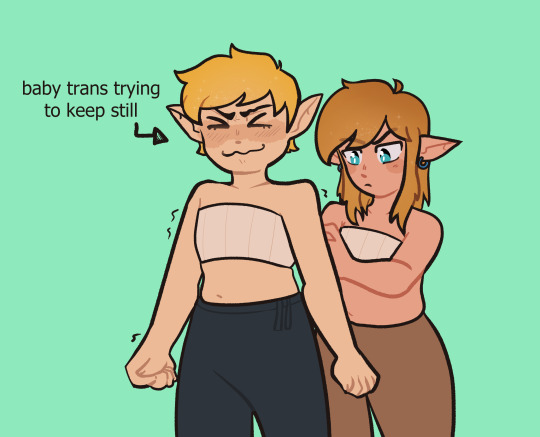
this might've made me go a bit insane ok. first thoughts upon seeing this; LACE UP BINDERS T4T BOTW ZELINK HELPING EACH OTHER LACE THEM UP PROPERLY. gotta draw that, might come back to do those other ones though bc boy do I have thoughts about those also !
second thoughts. holy Fucking shit this gives me an excuse to go off about trans masc zelda and how inherently interesting that can be to the entire narrative. and then realizing how amazingly it could mesh with botw zelda's story specifically into a queer retelling.
THANKS ANON THIS ALONE MADE ME ACTUALLY LIKE BOTW ZELINK WHAT HAVE YOU DONE TO ME
zelda's role is to take up the powers of hylia. zelda has always been a girl, a woman. of course all of them would be. hylia is a goddess. the first zelda was hylia's personal vessel.
botw zelda [ going to call him zel here on out in this post for clarity lol ] would have to come to terms with how his feelings don't align with his self-perceived role. at first, he thinks his yearning to be a boy is more to do with hating his responsibilities. i think his relationship with both his gender and his role in destiny is an incredible complicated one because of all of this.
meeting link, the other destined one, probably really fucks him up more. link being a trans boy himself, on a surface level, one might think would bring zel relief; someone like him, so close to him. but it does the opposite. link has always been a boy. this link, being assigned female at birth, is a boy as well. to zel, this reaffirms his thoughts that destiny has locked their genders into place.
in general, i don't think transphobia is a huge thing in the loz universe. it's like, a very niche kind of bigotry thankfully. it's MY childhood fantasy games and i get to mostly poof it out. i think the big exception to this would be those associated with destiny, prophecies, and of course, the reincarnation cycle.
zel is pressured to not only be a good daughter and princess, but to take on the powers that should be blessed to him by the goddess herself. everything just drives him further into hating everything, including link early on.
a big part of zel being able to actually unlock his powers would be both what i think happens in game [ desperation to protect ] as well as acceptance of himself. zel's inner turmoil over his own identity, where his duty as holder of the triforce of wisdom starts and right to be himself ends.
of course, there's no actual reason for the holder of wisdom to be a woman; as there is none for the holder of courage or power to be a man. it just so happens that it tends to be like that.
i think a retelling like this could add such a strong layer onto zel's character arc. it's so good. augh. thank yuo i hope any of this is somewhat coherent. they kiss in the end
btw i think generally trans masc zeldas go for the name sheik [ thank you OOT sheik you walked so the other tran masc zeldas could run ] but botw zelda specifically would take the scientific name of like, a small critter or plant, and alter it so it sounds kind of like a hylian name. OR just go by 'zel'. or both ! idk.
56 notes
·
View notes
Text
Assigning Names to Characters from The Underland Chronicles who's names were 'never disclosed"
written because names and their meanings interest me, as does Greek mythology, history, and plays, and I had a couple Saturdays where I had no plans and writing this was a fun way to pass the time.
Character from Luxa's Paternal Family... basically everybody except Nerissa and Henry
Luxa's father the former King of Regalia, Judith's husband. So Luxa's name means "Light", which in the underland goes hand and hand with "Life". I have heard the fan theory that, because of how closely associated the two are then it is possible that all of the first born heirs have names that mean light. So I googled male names that mean light and I picked Lucius or King Lucius because it has a Latin root just like his daughters.
King Lucius and Queen Judith's bonds. Yes I know it is never stated that either characters had bonds. But humans having bonded relationships with the bats seem more common for them than marrying other humans. Even Suzanna Collins herself admitted that you have to be close with a bat to survive long in the underland. Anyway I always assumed that the pair had bonds, who died with them during their final battle. i have also always head cannoned that the King's bond was named Zeus for obvious reasons, and that the Queens bond was named Venus, because Aurora surely cannot be the only bat in the underland to have a Roman deity name instead of a Greek one.
Luxa's paternal uncle, Nerissa & Henry's father: The younger royal brother. At first I was going to give him a name that meant light like his brother. But since Nerissa's name means "Sea Nymph" and Henry's name means "House Ruler" I do not think that "spares" have the same naming tradition as the first borns. So I considered other words that have important enough symbolic meaning to name a prince after: Darkness, Torch, sword. when I looked up names that mean sword I discovered that the name 'Owen" has two meanings. It means both "noble/ well born" and 'young warrior". So I would say Prince Owen is a very fitting name for the Prince of a military based society.
His Bond: a female bat named Styx a minor goddess/river in the underworld. My reasoning is, again, that Nerissa's name means "Sea nymph" and it does not really fit with Henry "House Ruler" and Luxa "Light" name scheme. But if one of her parents had a bond who was named after a mythical body of water then they could have lead to a touch of inspiration. I picked "Styx" because while it does not sound anything like "Nerissa" as far as pronunciation, it being the river that runs through the underworld does give it a sense of mischief and tradgety, that envelops Nerissa & Henry's branch of the royal family.
Nerissa & Henry's mother, Luxa's paternal aunt by marriage. She is an interesting one. I had to remember that, like Judith, she married into the royal family instead of being born into it. I also do not think that her and her husband's marriage was arranged at birth (Luxa, Nerissa, and Henry do not have fiances). This means that while she probably did not have a name meaning "Princess" she could theoretically be named anything. I want to name her " Cleo," later "Princess Cleo"partly after Cleopatra who was a very historical women, and also because it means 'to praise or acclaim". That is fitting for a women who married into royalty and became a princess.
Her Bond: Achilles a brave and powerful soldier, who slipped up in battle once and died tragically. Another name that fits both the power and the tragedy of this team and this family. Also feel free to imagine this character as Nerissa and Henry's goofy gay uncle.
Characters from Gregor's family
Gregors Dad. Lee Campbell. Despite being heavily explored/featured in the books he is famously never given a name. I have seen fans in posts and fanfics give him names like Andrew, Steve, and Lee. While I am partial to the name Steve, I went with Lee. The Campbell kids physical descriptions are vague at best, but when you look add up what we do get (they have brown eyes and light brown skin, Boots hair is a mess of dark curls, Lizzie wears her hair in braids) most fans agree on the interpretation that they are biracial kids. Their dad's race is never specified (his face is near identical to Gregor's , and while he used to have dark hair its been gray since his time with the rats) and Lee is a name that works with multiple races you want to imagine him as
Gregor's Grandmother: Dorothy Campbell. Her family and friends shorten her name to either Dora or Dottie. Another member of Gregor's family who is never actually given a name in the books. There is one scene in CotWB, when Gregor and his parents are getting everyone up to evacuate the apartment because the rats are in the walls, where Gregor's dad is talking to grandma and he calls her "Mama" so she is likely the kids paternal grandmother, and their dad's mama. I am really glad that the dad being missing for 2.5 years did not cause a rift between her and Grace then. You know that these two women needed each other during that time, and the kids needed both of them.
I am naming her Dorothy after Dorothy from the wizard of Oz. Both are women who grew up on a country farm, then move to a strange and wondrous land that they enjoy parts of, but ultimately they never quite take to it.
Greogr's bonus grandmother, Mrs. Cormaci. We know her last name but not her first name. According to Google Cormaci as a surname is most likely either Scottish or Irish. Awesome because Morgan is a Welsh and Irish name. It also is the name of many magicians throughout literature. While Mrs.Cormaci is not specifically mentioned to have psychic powers but she has an almost magical talent for knowing what Gregor will need in the future. So as far as I am concerned her name is Mrs. Morgan Cormaci
Names for Characters from Luxa's Maternal family.... a couple bats and her uncle's lover
Names for Bats bonded to York and Susanna
York mentioned having a bond in GatCoC, who since childhood I have headcannoned was named Hercules. York is described as being a muscular giant, and so anybody who carries him in battle has to be very strong. Since he is not bonded to Ares he can be bonded to Hercules
With Susanna I never thought about her having a bond as a kid, but I guess she would have one. She is a doctor and an older sister, so let's say she has a bond named Apollo.
Hamnet's first bond. @deliver-the-light already did a poll on what her name should have been, and Eurydice was the name that won the poll. I like that myth, so I will honor the poll and keep that name.
Hamnet's lover, Hazards mother, and the women who maybe could have been an aunt to Luxa and Howard, had she ever gotten to meet them: Well first lets talk about this women. It was from her that Hazard inherited his two overland traits: curly black hair, and lime green eyes. Black hair and green eyes are actually a rare combination. Most people with black hair have either blue or brown eyes. According to google she would most likely be Irish or Scottish. Another notable thing about her, she once lived in New York City, or at least she had parents who lived there. She also wanted to take Hazard to visit at some point, which implies that there was a chance she could get back to the overland, and chose to stay in the jungles of the underland. Now New York is a difficult place to live with its over population, high cost of living, high crime and pollution rates. But the Underland jungles are also a difficult place to live. There was something about Life in the overland vs life in the underland that led to her choosing to stay in the Underland jungles. She didn't just love Hamnet, but also this wild world he lived in. Or her life above ground was so wild that she felt more secure in the underland? Because of all of this I looked up a female scottish or Irish name that means "Wild'. Her name is Fia.
Also if you have read another post I made you will know that I am a fan of the theory that She was Mrs. Cormaci's daughter. Finding out that there are cannon reasons to suspect that the two have similar/the same heritage is adding to that. Let Mrs. Cormaci see Hazards face either in a picture from the party, that Gregor shares with her, or have him come up for a day visit, and meet her in person. Have her send/show Hazard a picture of her daughter with Fia Cormaci's name written on it and him get all excited because yes that is his mother. Then let Mrs.Cormaci and Hazard form a relationship and eventually complete the circle, by giving Hazard an actual chance to chose which world he wants to live his life in.
Last thing since I was thinking a lot about Hamnet's family I used that opportunity to look up alternate meaning to "Hazard" and try and find justification for why loving parents would name their son something that means "Danger" and "bad thing". Alternate meanings include "Venture, put forward, chance, risk" Hamnet is named "Home", I just named Fia "wild" and these definitions make Hazards name fit perfectly with his parents and their story.
#the underland chronicles#Gregor the overlander#Queen Luxa#Gregor Campbell#Luxa#The Campbell family#The Underland Bats#Mrs.Cormaci#Nerissa#Prince Henry
28 notes
·
View notes
Text
NAKSHATRAS AS GODDESSES
4/27
🌸ROHINI🍭
DISCLAIMER: This is based solely on my research and the patterns that I saw. I can't promise that I'm gonna be sure in all the coorelations, but I'm going to attribute each nakshatra a goddess that I think fits it the closest. If you're dissapointed, to make up for it, I'm going to list some other deities in the end that I think also fit the nakshatra. Don't come for me if you think I'm wrong, be respectful in the comments if you think so and have fun 🤍
This one was easy and also not easy? It seems too easy, too easy to be true, like the mythology of the nakshatra itself...
Lakshmi
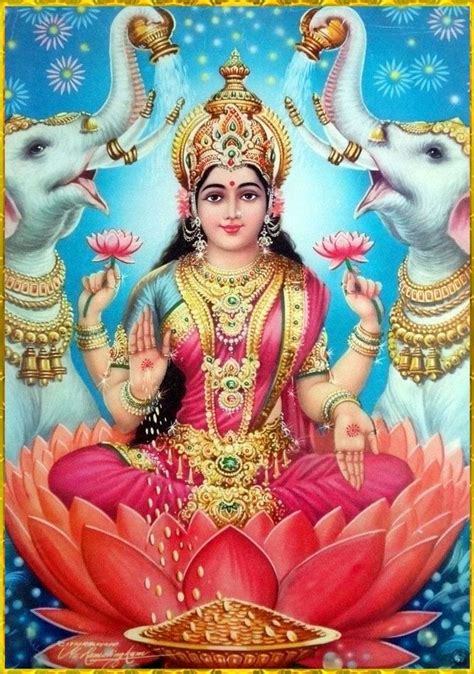
Pantheon: Hindu
Name meaning: a lucky omen, the goal.
Associations: wealth, beauty, love, abundance, fortune, power, fertility and prosperity.
Symbols: Lotus flower, elephant, owl, gold coins.
Lakshmi, according to Hindu mythology, was born from the churning of the ocean of milk, an event that was caused by the war between the Demons and the Gods. She was born fully grown, on a lotus, with a smiling, radiant face. She rides an owl and is often depicted by two elephants showering her. Elephants are a symbol of strength, luck and proserity. Owl (the symbol of the opposite nakshatra- jyeshta) is often seen with Lakshmi as a kind of guardian, always watching over her.
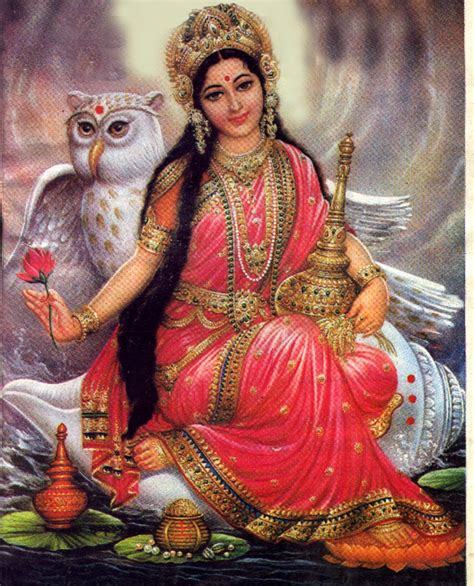
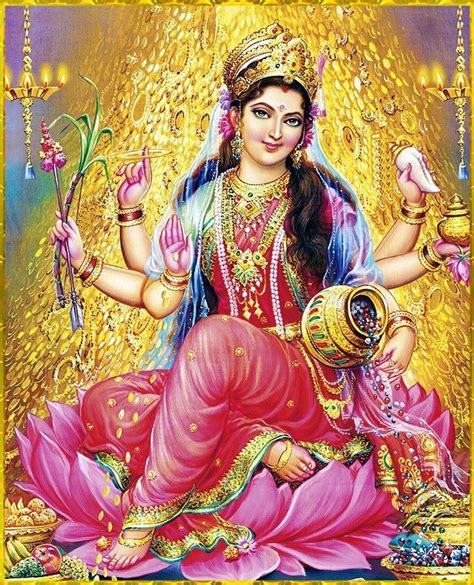
Rohini is the nakshatra of quick and rapid growth, its real life natives often being physically mature but internally childlike, often more dependant and submissive. This is the trait that makes this nakshatra the favourite of the moon, the planet moon is also literally exalted here, as well as Rahu.
One of the symbols of Rohini nakshatra is a chariot. It's a preserved tradition that brides ride in a chariot on the day of marriage. Lakshmi is often depicted seating on a chariot. Chariot/cart is also the symbol of the Taurus, the sign in which Rohini is located.
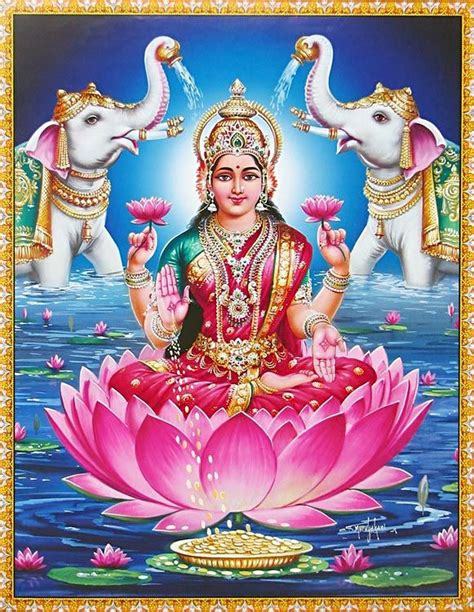
Some sources say that Lakshmi is associated with the moistness nessecary for growth (rohini's power).
You might have noticed that in most depictions she has four hands. They are said to represent the four aims of life: Dharma (righeousness), Artha (gathering necessary material recources), Kama (going after desires) and Moksha (liberation through knowledge). Her name literally means "aim" or "goal", so that definitely makes sense.
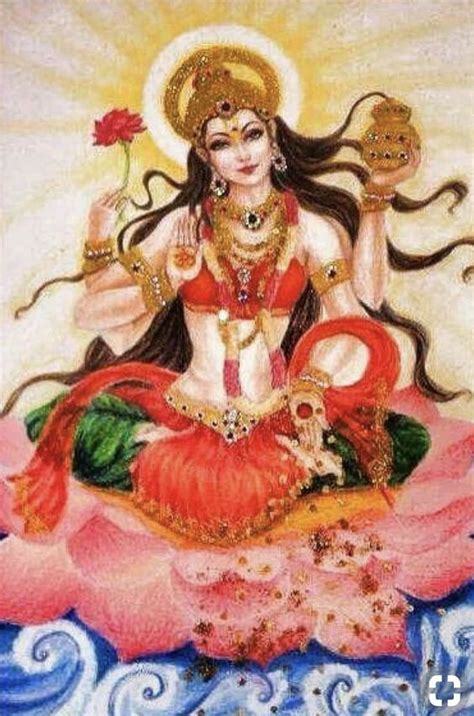
The deity assigned to Rohini is Prajapati- creator god. Rohini is the birth of the cosmic daugher and feminine at its most submissive. So submissive, that she does not question what influence is offered to her, she just absorbs it and gives it back.
Because Rohini is growth in all of its aspects, it's no wonder that the Hindu goddess of wealth is coorelated to it. Rohini is also closely connected to the Hindu culture overall. The overabundant use of bright, saturated colors and the frequent flower symbolism (flowers are connected to Rohini) is reminiscent of what people find beautiful as children, especially little girls.
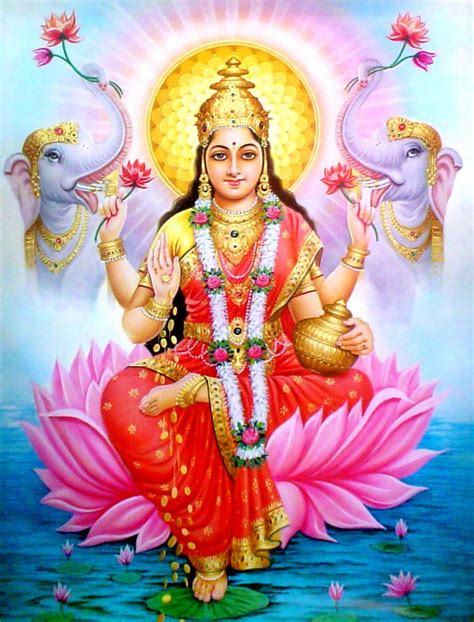
The overall analysis of Rohini is a completely different topic and claire nakti has done a stellar job at it. Hopefully this post made it clear why I think Lakshmi is the fit for Rohini. Also, do not think me lazy because I chose a Hindu goddess, it's literally the best one I could find, besides, Indian culture really suits Rohini.
Apologies to Rohini natives and everyone else, I couldn't find other deities that suited Rohini, besides Prajapati and Goddess Rohini herself, but I think that Lakshmi is pretty much on point. Let me know your thoughts, comment, reblog, like. Thanks for reading and take care 🤍
#rohini#rohini nakshatra#vedic astrology observations#vedic astrology#astrology#astrology observations#nakshatras#feminine#goddesses
189 notes
·
View notes
Text
𝓣𝓱𝓮 𝓑𝓲𝓻𝓽𝓱 𝓞𝓯 𝓥𝓮𝓷𝓾𝓼
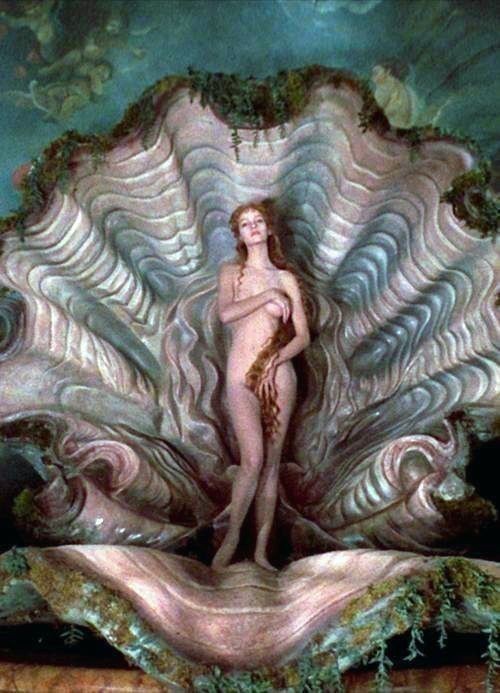
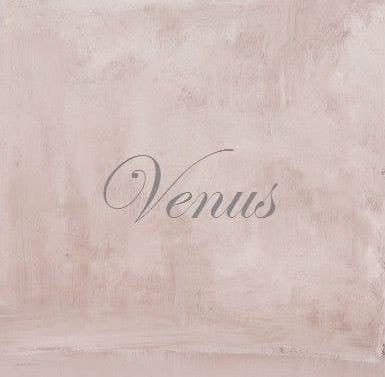
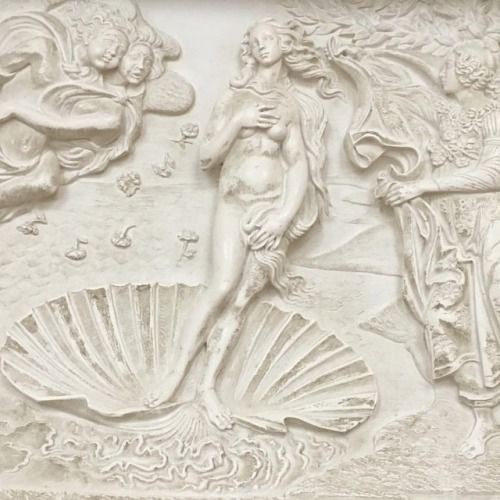
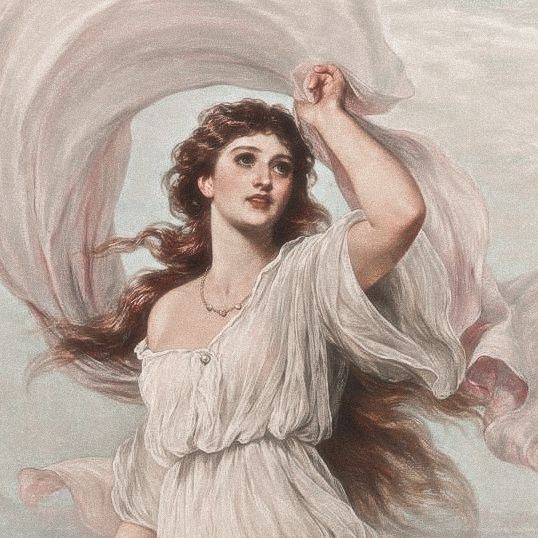
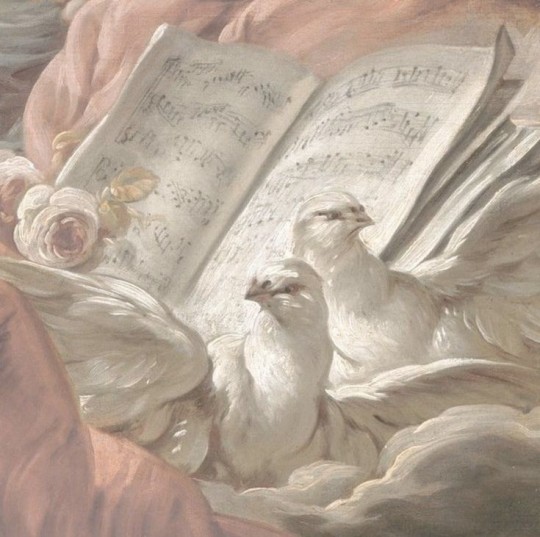
What day was it she slid up from the innocent sea
Unstirred by tug of tide
Under her feet the sand.
Shifted. The waiting land Enclosed her like a shell. The stallions in the foam Remarked her and were tame; The chariot of flame stood still to see her come. All nature felt the weight of her first faltering steps.
Time shifted, and the shapes Of ordinary things Altered beneath her touch; There was no way to turn
Back. She must stay and learn the role they had assigned: To be their goddess, serve the movable feasts of love.
Birth Of Venus
- CONSTANCE URDANG
#જ⁀➴ 𝓣𝓱𝓮 𝓑𝓲𝓻𝓽𝓱 𝓞𝓯 𝓣𝓱𝓮 𝓥𝓮𝓷𝓾𝓼 🦪#𝓛𝓸𝓿𝓮 𝓛𝓮𝓽𝓽𝓮𝓻𝓼 𝓕𝓸𝓻 𝓥𝓮𝓷𝓾𝓼#𝒟𝑒𝓋𝑜𝓉𝑒𝑒 𝒪𝒻 𝒱𝑒𝓃𝓊𝓈#the birth of venus#venus#aphrodite#aphrodite devotee#venus devotee#poets on tumblr#poetry#constance urdang#gaslight gatekeep girlblog#girl blogger#girl blog#manifestation#witchcraft#witchblr#paganism#hellenic pagan#pagan#pagan witch#paganblr#self love#feminine beauty#devine feminine#the feminine urge#the female experience#female beauty#girl blogging#girlblogging
44 notes
·
View notes
Text

aella is a goddess of the wind, a warrior race that are raised to fight from birth. she was assigned to guard camilla as a very young child, raised beside her as her personal protector. she learns to fight as soon as she is able to walk, and by her teenage years is in charge of training the human army of amoura. at 21, she takes her vows to her ancestors, including never to "defile" her princess. aella struggles with this as they grow older and their attraction to each other becomes impossible to ignore.
i love aella. i looove aella. she's not my most attractive sim, but she is my beloved. she's so stoic and serious and grouchy, but totally soft for camilla. people think she's mean, and even the guardian king is afraid of her. she is utterly devoted to the princess in every way.
#sims#sims 4#my sims#the sims#ts4 simblr#simblr#show us your sims#sims 4 screenshots#the sims community#ts4#ts4 screenshots#the sims 4#lgbt sims#lesbian sims
17 notes
·
View notes
Note
do you know of any deities related to reproductive rights? i apologize if this is a silly question 😅
Hi, this isn't a silly question at all!
Unfortunately since women were not considered "people" in the ancient world (they were often seen as baby incubators with the sole purpose of having children which is why they were married off as soon as they got their periods and, unless they were from Sparta, without an education since education for young girls was seen as useless, unlike their brothers who would often receive an education, and sometimes if no other male relative was alive, their younger brother could be in charge of his older sister's life and marriage fate. Could you imagine having your annoying little brother in charge of your life? HELL NO!)
There are no Greek gods officially assigned to reproductive rights because reproductive rights were not a thing for women back then because they didn't have a say in their own life (there may be exceptions but those are super rare) but I believe that as time changes so do the gods which is why I believe any fertility god back then is also a god of reproductive rights, today:
You are free to look into the list of fertility deities in case you prefer someone else but I highly suggest Artemis for a number of reasons:

1) Artemis is one of the oldest fertility gods in the pantheon: She has an older Mycenaean version where she was already a fertility goddess since her older version, A-te-mi-to was a part of an ancient Arcadian tree cult in Greece that had orgies for reproductive purposes so she was firmly a fertility goddess but when they decided to change her from the non-virgin, non-twin Mycenaean version to her post Bronze Age collapse virgin, twin of Apollo version they re-invented her myth to include her helping her mother give birth to her brother Apollo, so she could keep her original title as a fertility goddess.
2) Artemis jealously guarded her own virginity throughout her myths: As the goddess who refuses to be the wife of any man or god she was openly hostile to anyone who challenged her virginity. In some versions, instead of Apollo tricking her into killing Orion who secretly was planning to rape her, she kills Orion herself as a show of self-defense. While bathing naked she turned a peeping Tom into a deer and had his own hunting dogs kill him. She's also aware of her virginity being a desirable target because she uses it to distract the two giants who had imprisoned Ares.
3) She's the unofficial god-mother of the Amazons and she's the head patron goddess of the strong women of Spartan: Her and Ares, the father of the Amazons, are really close so she is often with the Amazons herself. This is probably the closest to children Artemis will ever have since she has no children of her own. She is also the main patron goddess of Sparta (with her brother Apollo), and Spartan women were the exception, they didn't get married until 18, often with combat training and an education, and since they often inherited their dead husband's wealth and kept getting re-married, the two kings in Sparta would often petition the women in Sparta for money to fund whatever war Sparta was involved in since the women of Sparta were often richer than the sitting kings.
So for these reasons, I imagine Artemis would be a very strong candidate as a fertility rights goddess since she exercised her right to remain child free all throughout history.

36 notes
·
View notes
Text
Considerations #6
You can't automatically put witches or witchcraft in the 12th house. I see some astrologers do that and I think it's an issue of not understanding the principals and adopting what they see in the ancient books without critical thought. The traditional sources would have witches in the 12th because it's the house of the bad daimon, which can show hidden enemies and spiritual attacks. William Lilly, for example, would look at it in horary astrology if the querent believed they had been bewitched or something of the sort. But witchcraft isn't always about hexing someone. If I had to put witchcraft in a house it would be the 3rd, the Goddess, as a magical/spiritual/religious practice. If you're a witch yourself you'll be looking at the 12th to see your hidden enemies, not yourself or your practice, you have no power in the 12th. And if you're actually hexing people, you'll look for them and that practice in the 6th.
The problem here is not thinking through why something was said and why things are assigned to the houses that they are. The houses are supposed to be understood in trios, the four angular triads. The 1st, the 2nd and the 12th form the first angular triad, with an angular, a succedent and a cadent house. Angular houses are where there's action, it's a turning point, where planets have power and can do things. Succedent houses are not yet angular, they represent things that support the angle. Cadent houses are about losing the power of the angle, it's where things fall, get slow and have no power. The 1st is the angle of the ascendant, the place in the sky where things were rising at the time of birth, so it represents the native themselves, who was also just rising in the world, and the basic rule is as above so it is below. The succedent house from it (the 2nd) is about what comes to the native, things that support it, and all succedent houses have a lot to do with material things. The cadent place from the native is the 12th, where the native falls, where they lose power or control, where they can be at the mercy of others. So, the 6th will be the 7th's cadent, the other's fall, where the other loses power, that's why we see there the signification of slaves or servants and small domesticated animals in the ancient sources. And generally, someone who got hexed by you is subjugated in a sense that fits best the symbolism of the 6th house of bad fortune.
I find it interesting that this is also a bad house for the native and this is probably not trivial. I don't know that much about magic, but from what I see, I think most magical traditions consider the link created between the two people involved in this as dangerous for the person casting the spell too, like war is dangerous and costly for both sides. If you consider all the other significations as well, they're costly, energetically or materially.
#witchcraft#12th house#3rd house#hellenistic astrology#traditional astrology#considerations#notes#occult#witchblr#6th house#mars#saturn#astro community#astro notes#astro observations#moon
26 notes
·
View notes